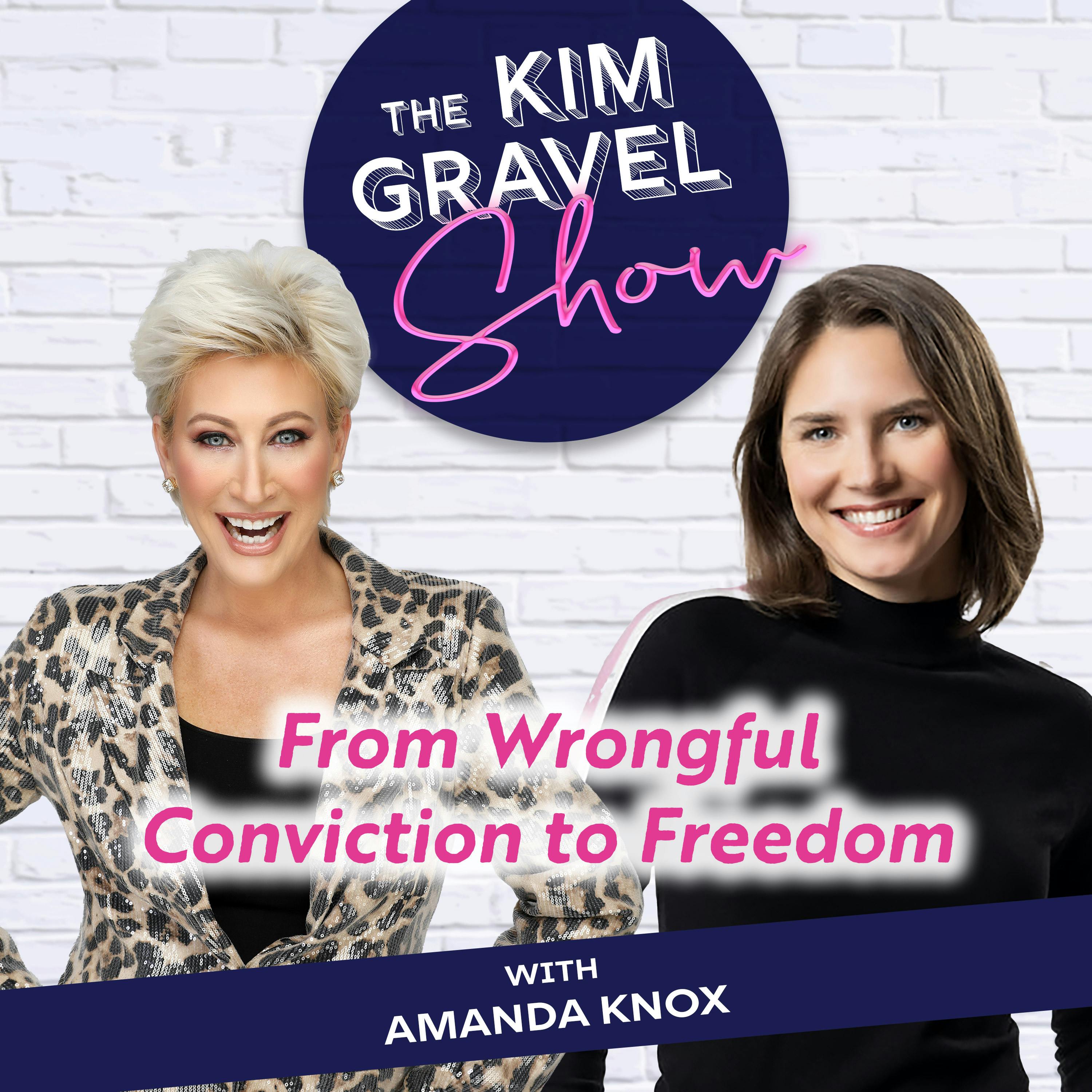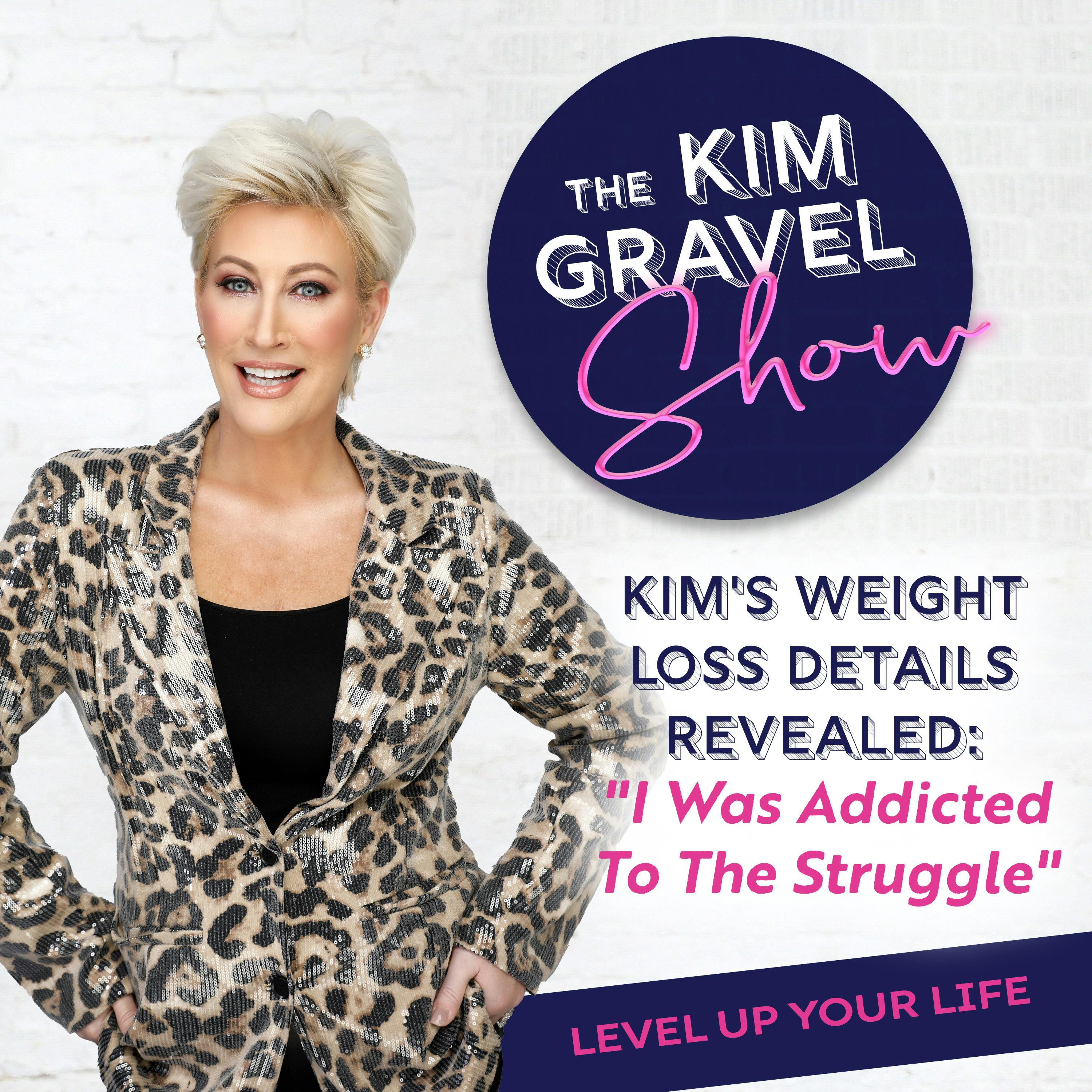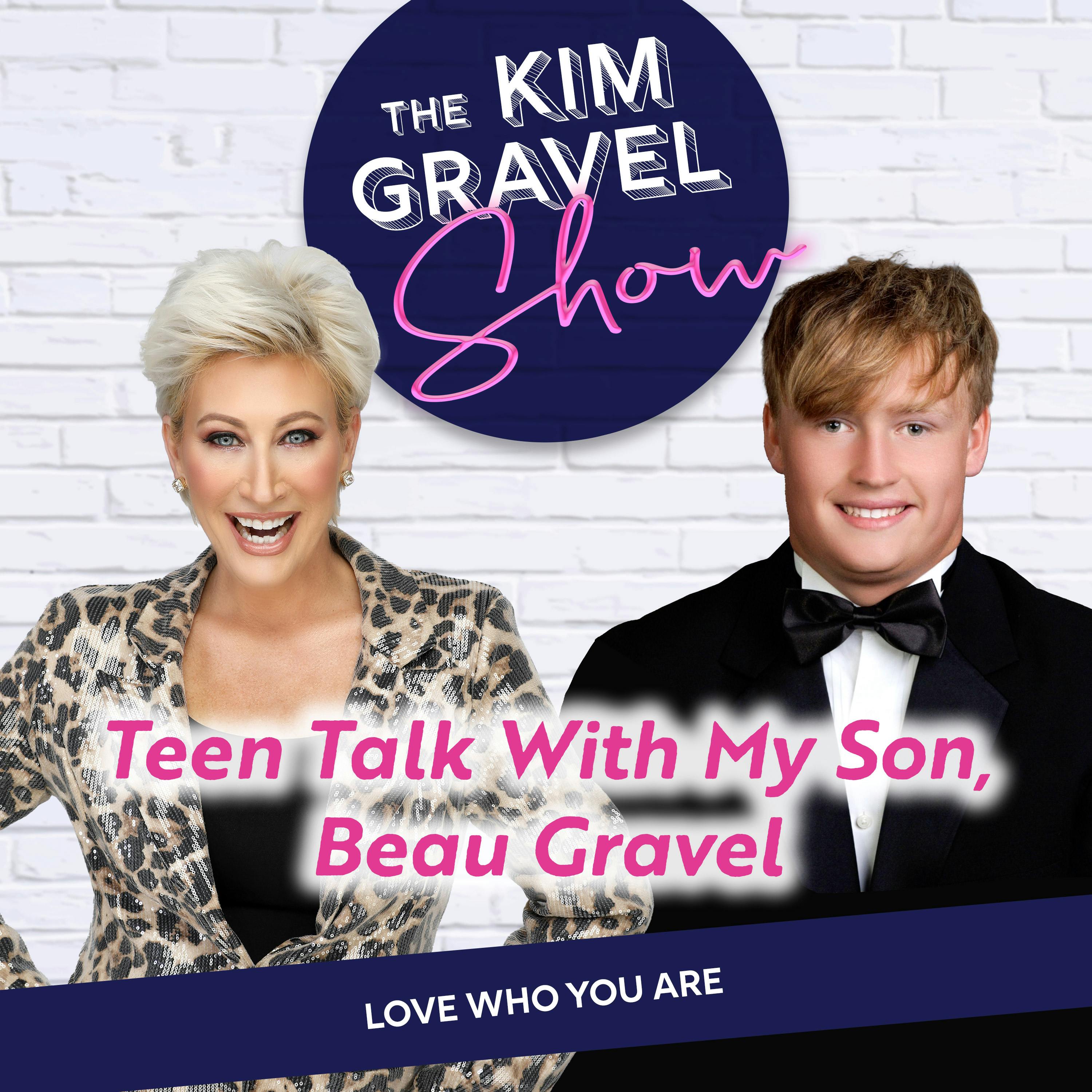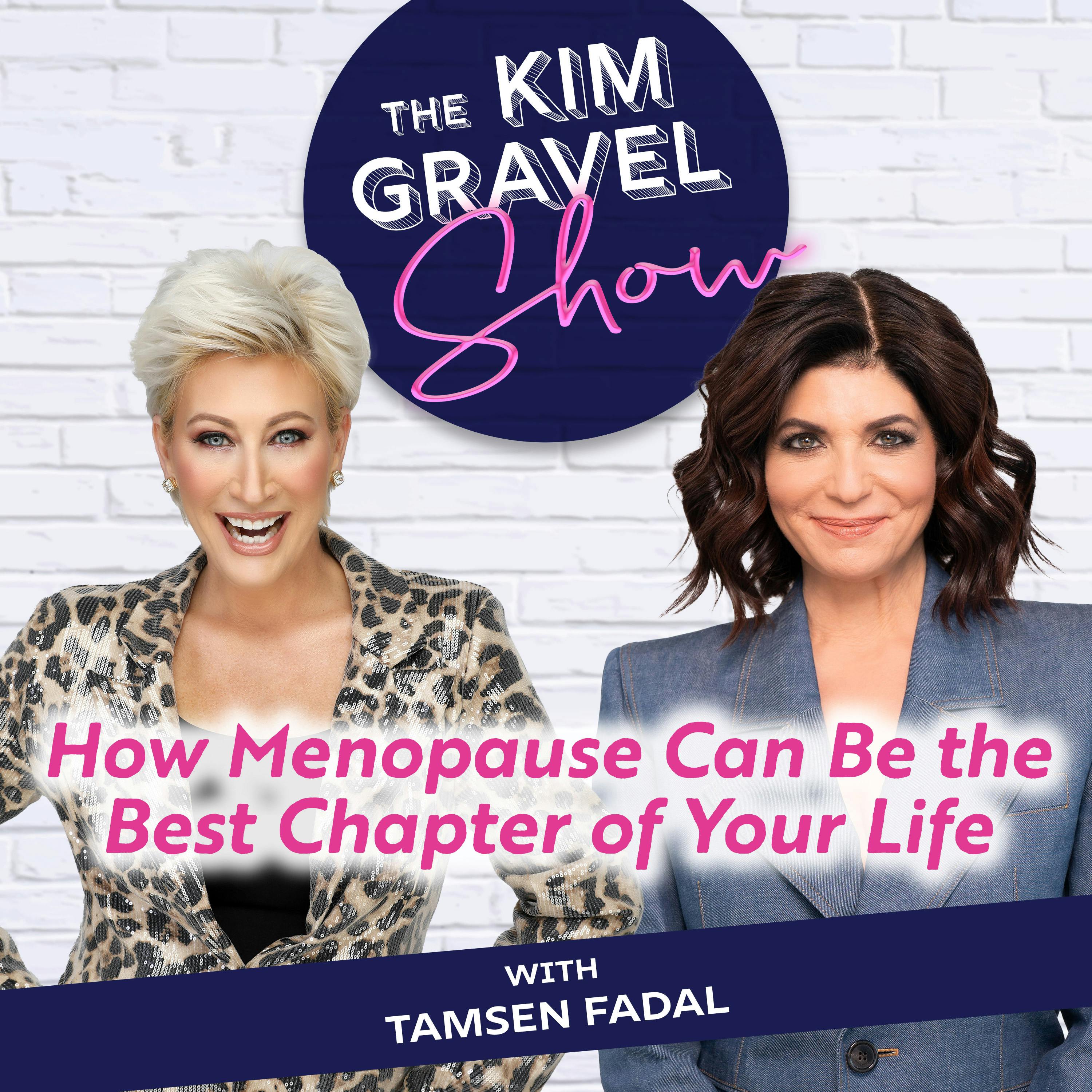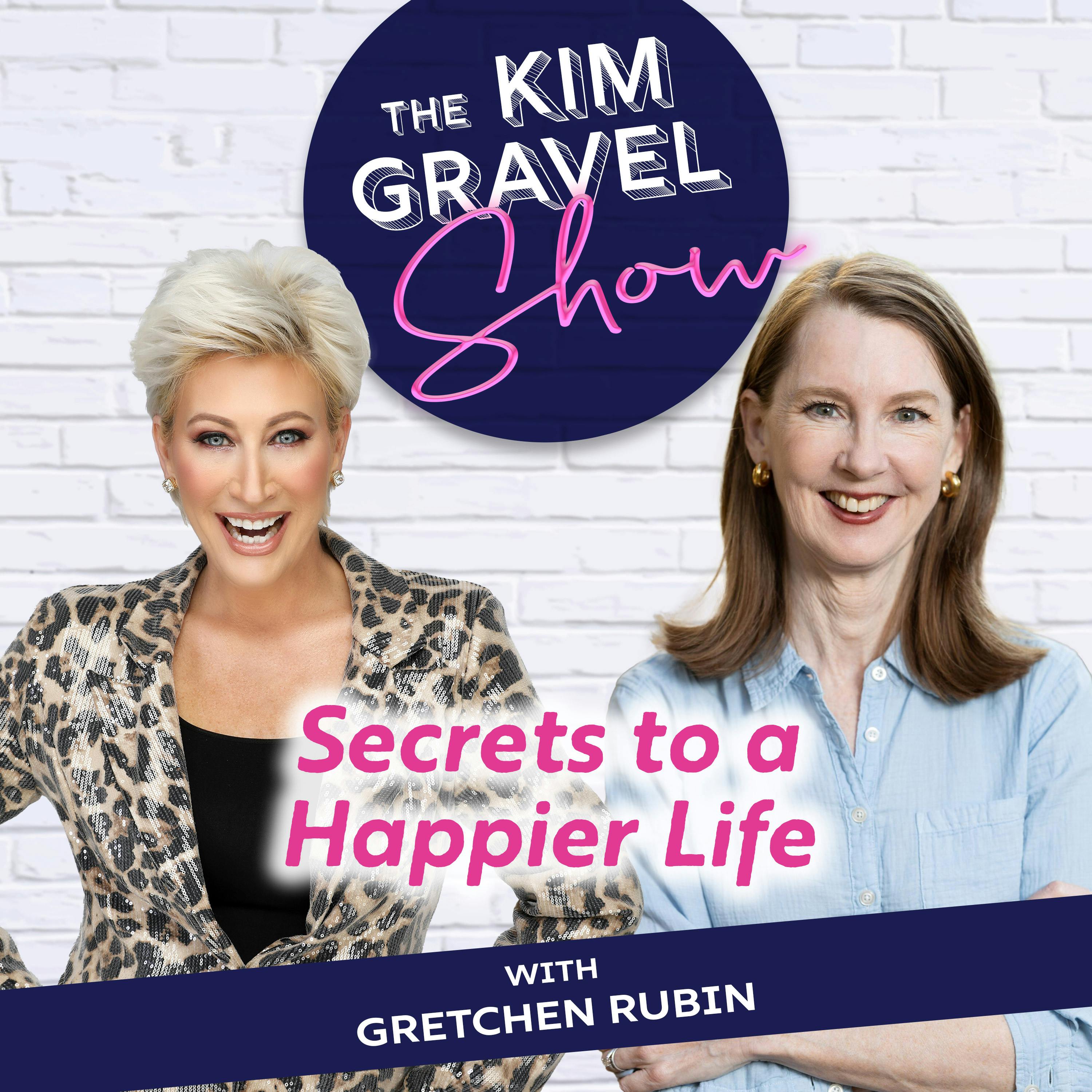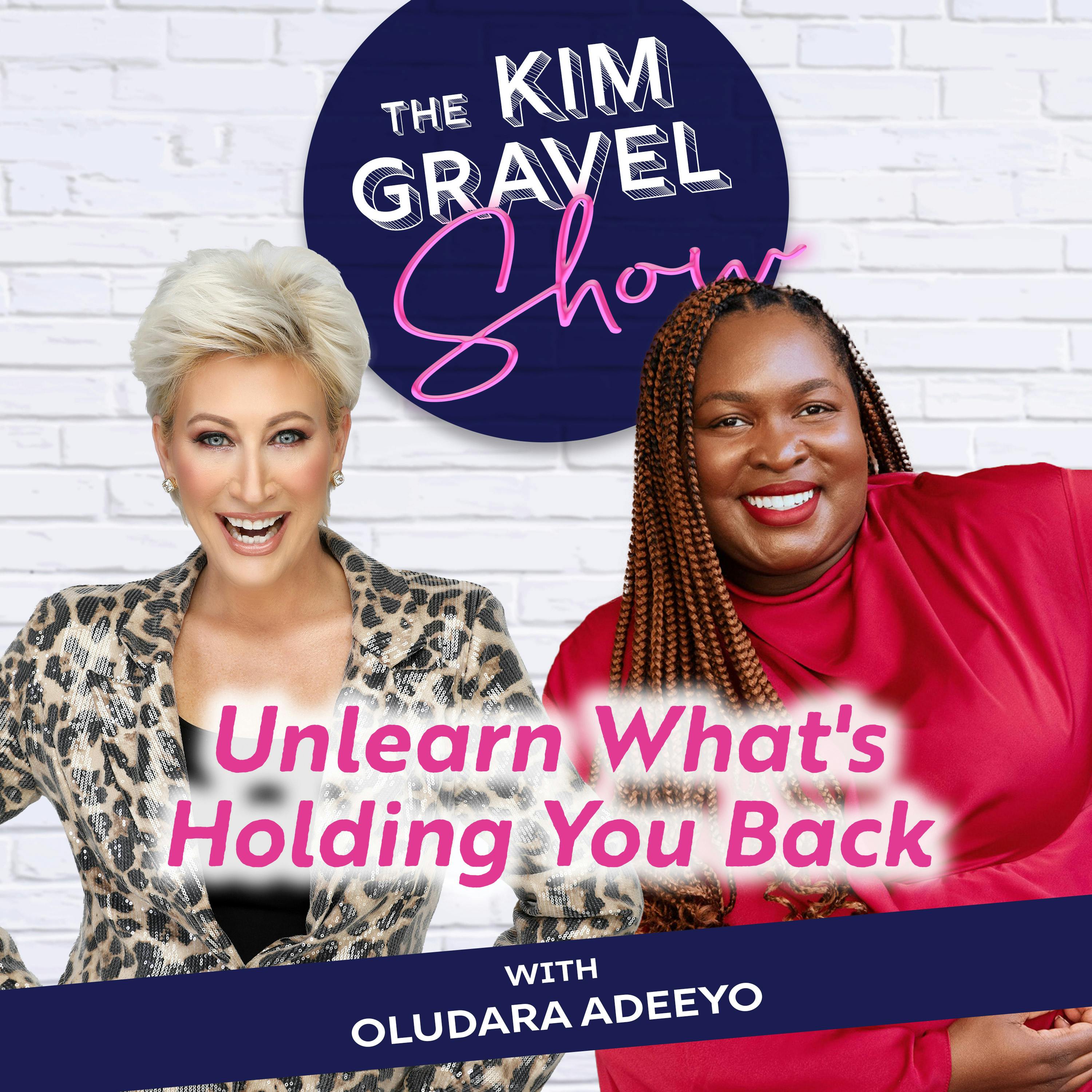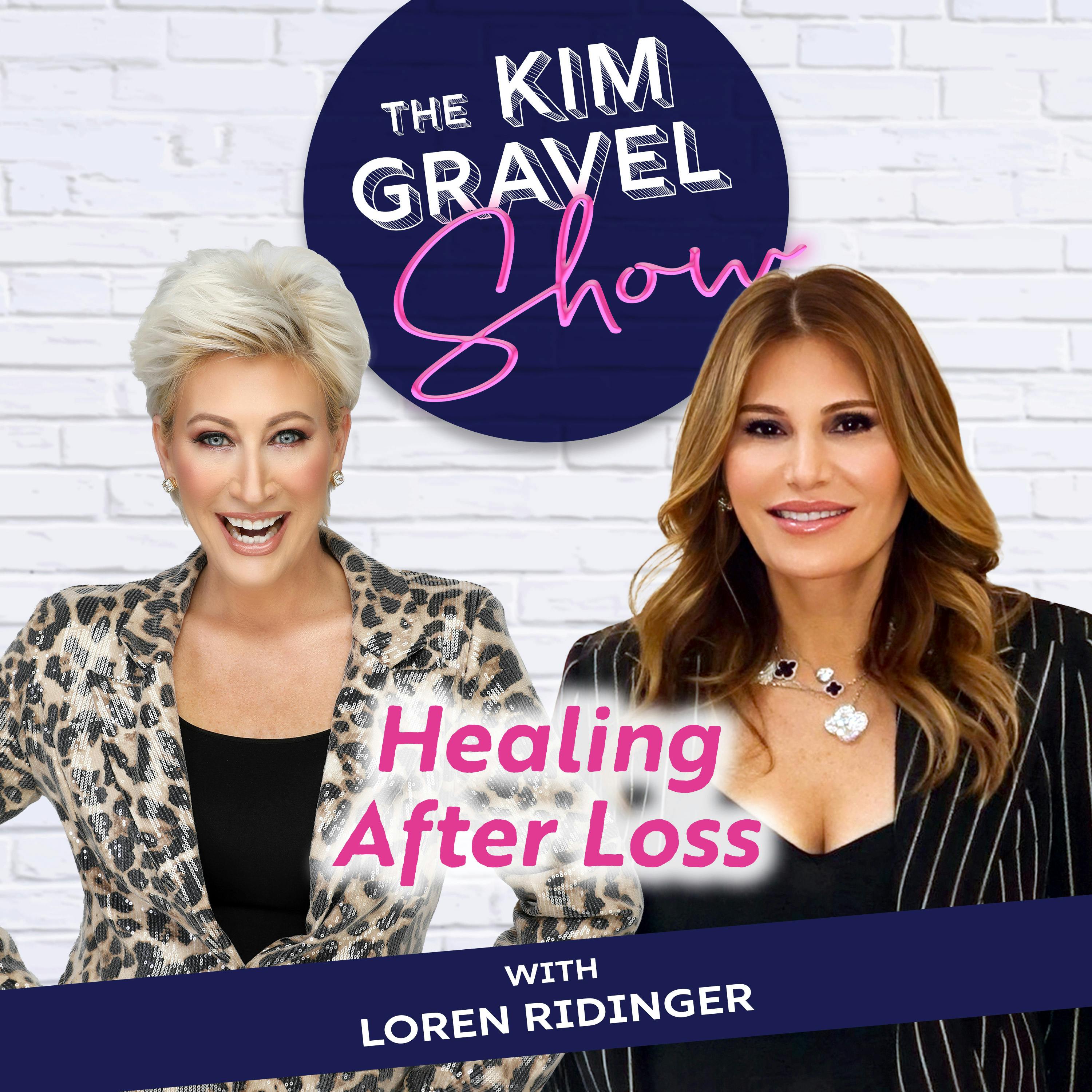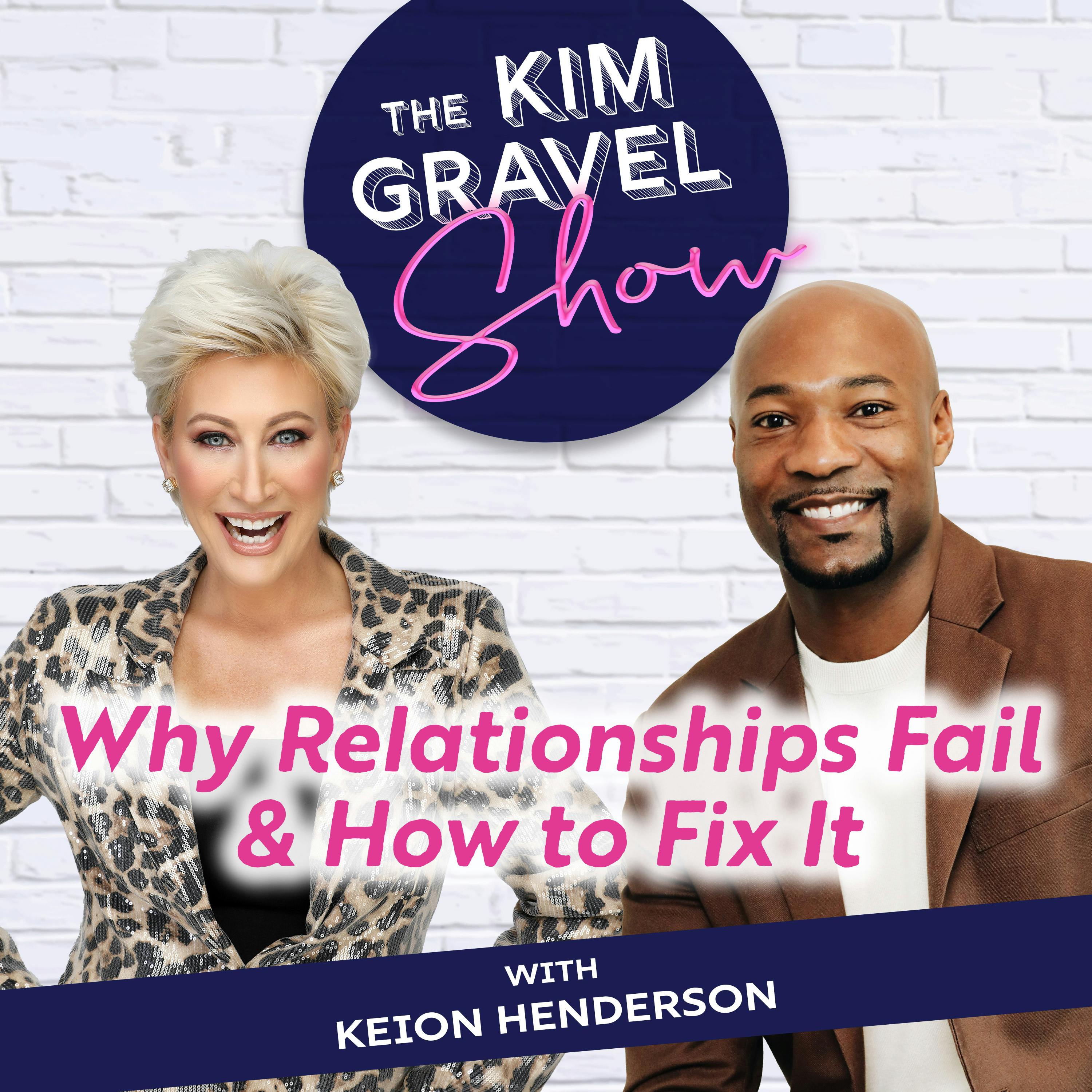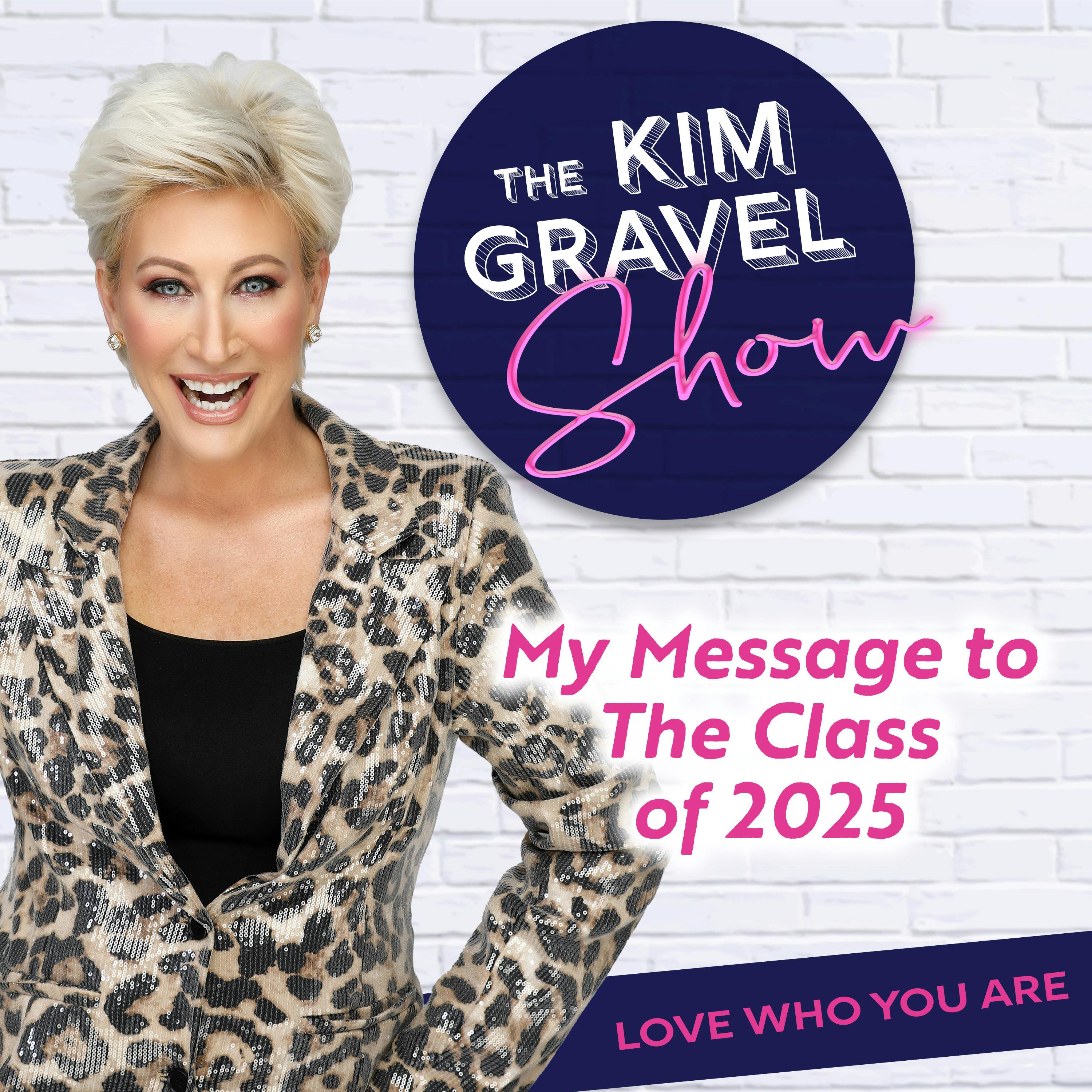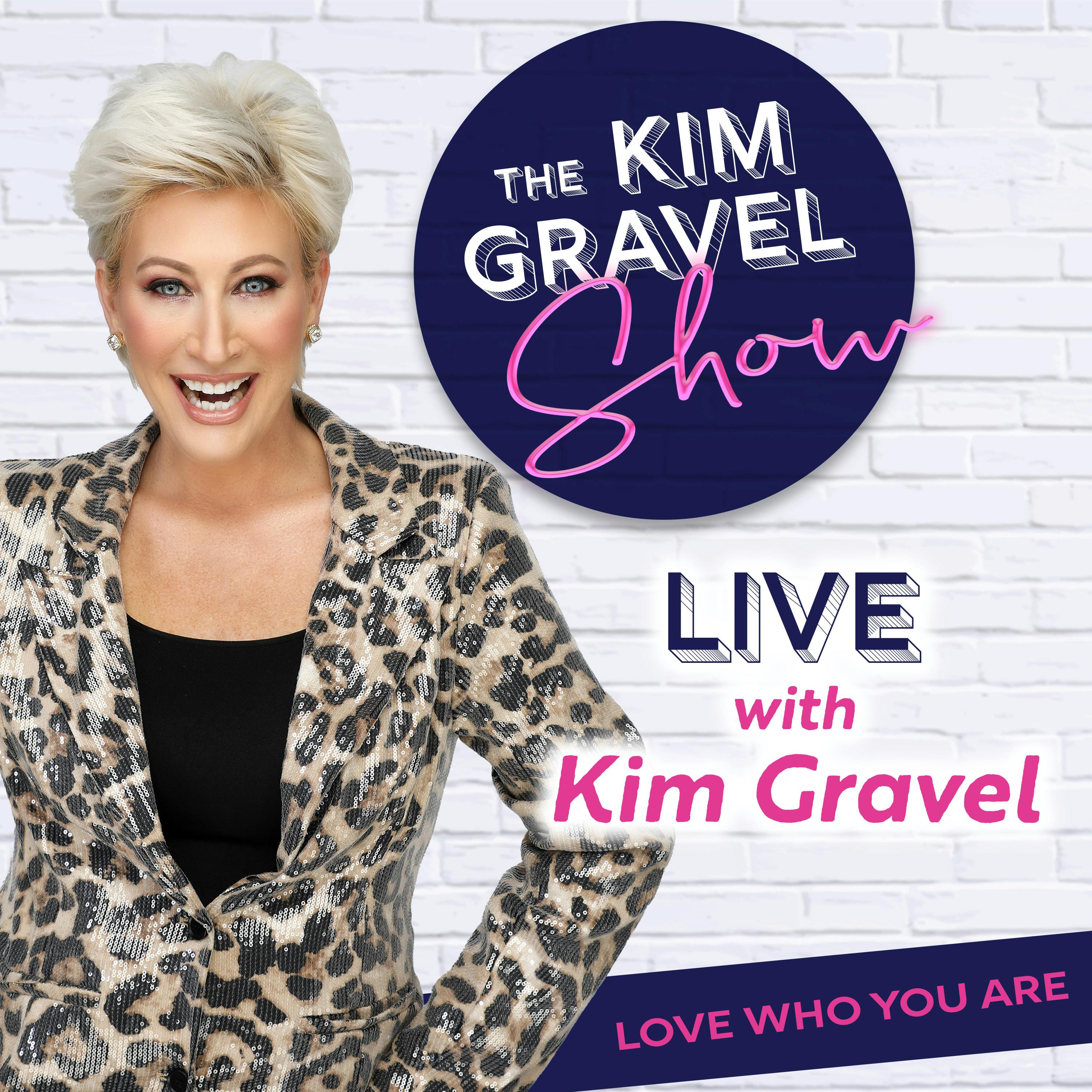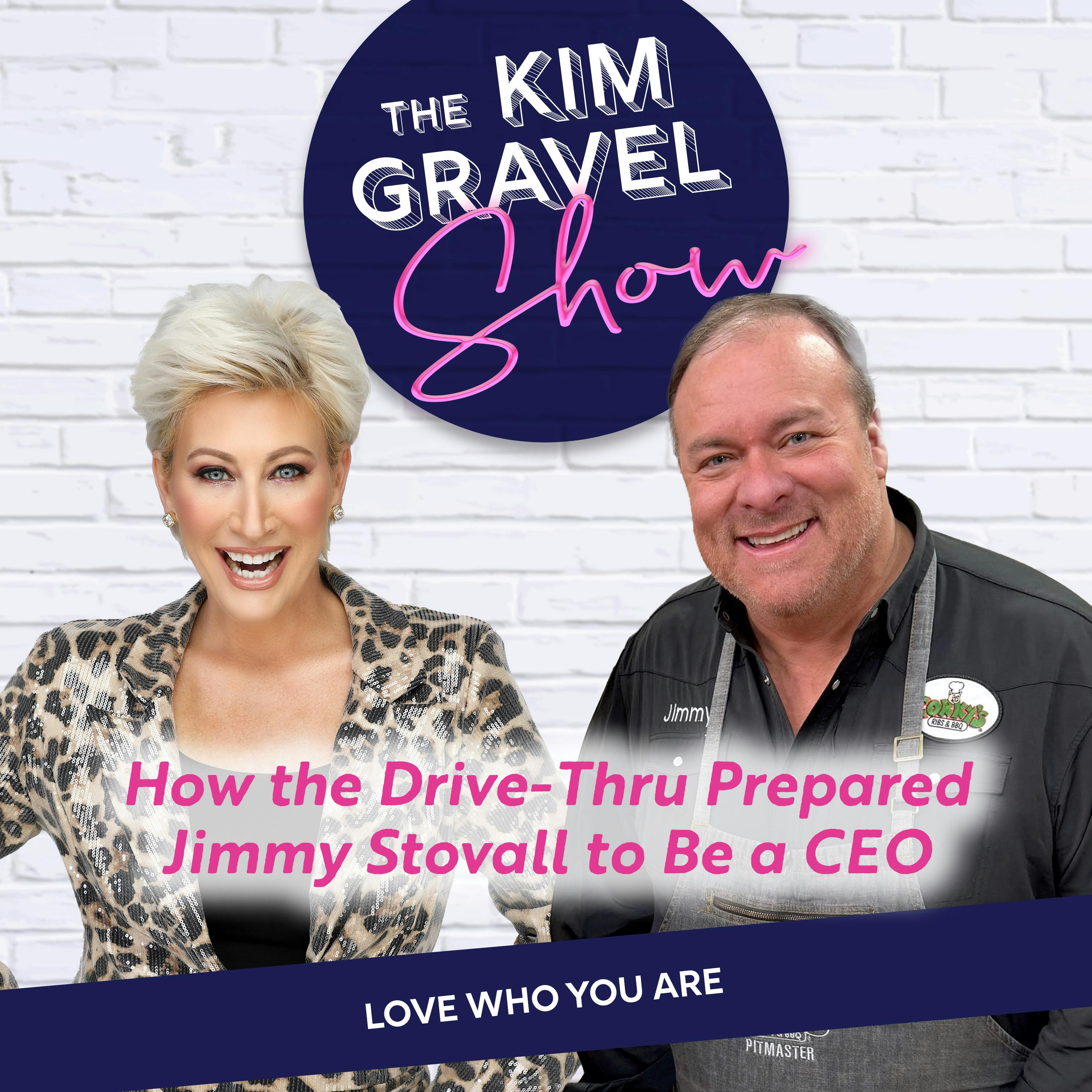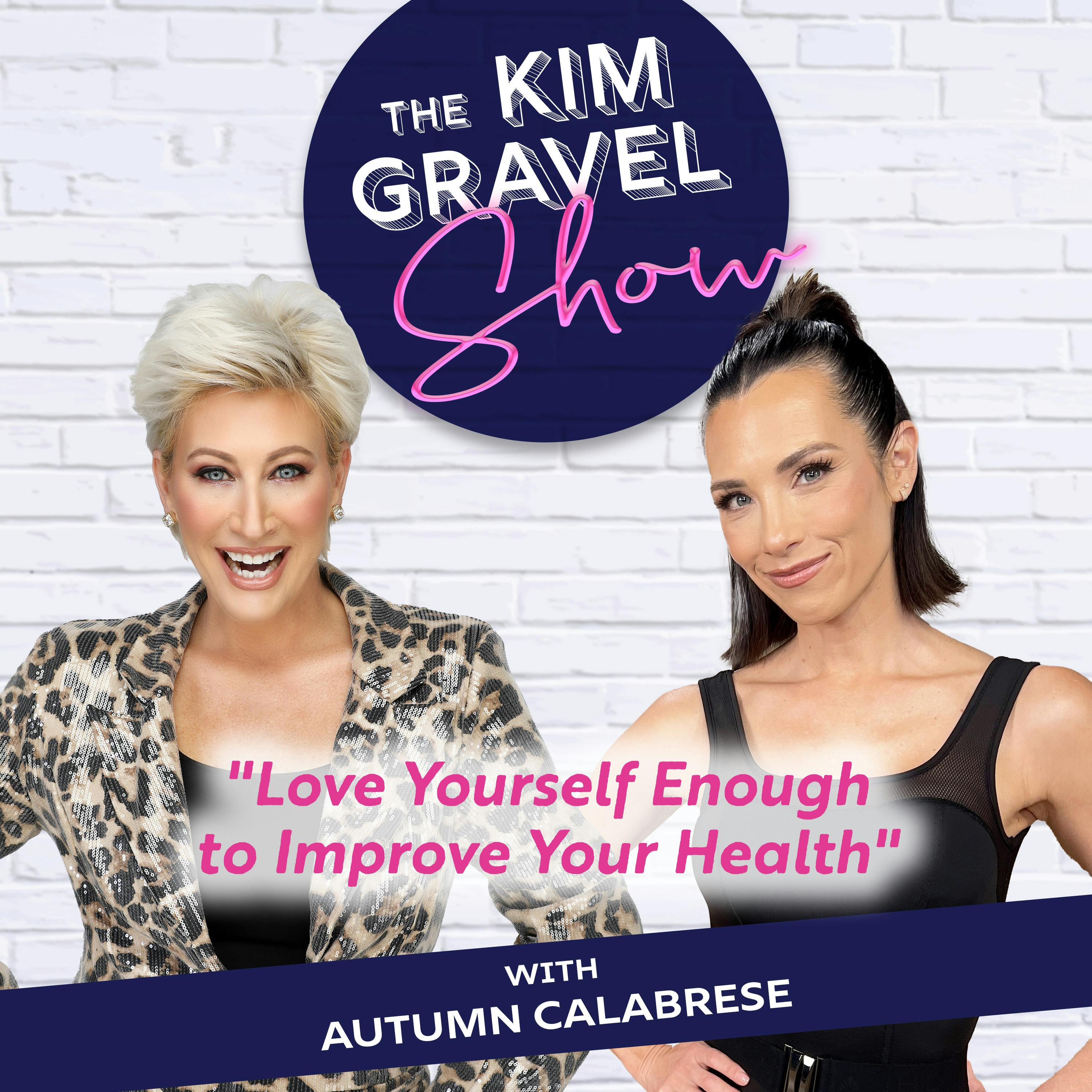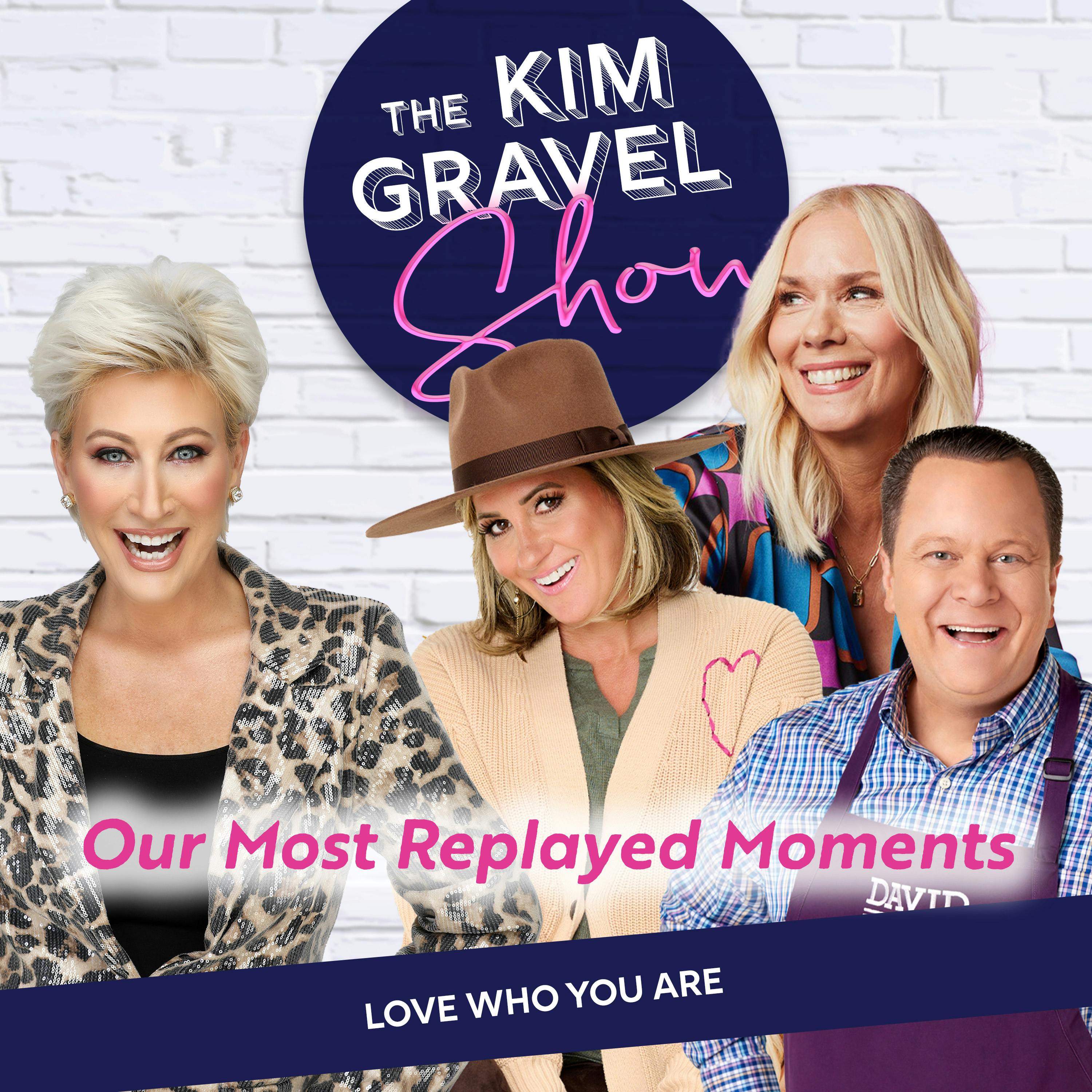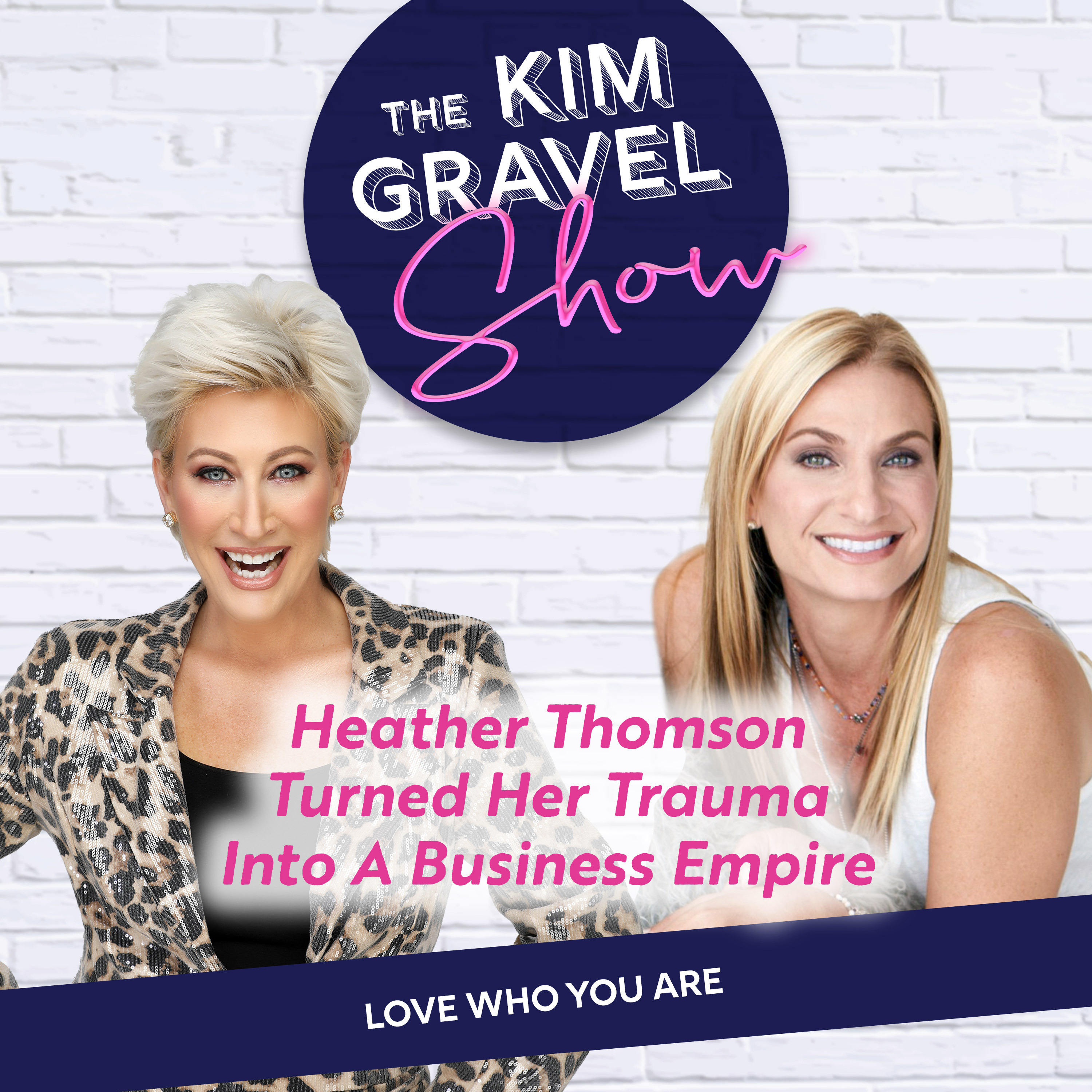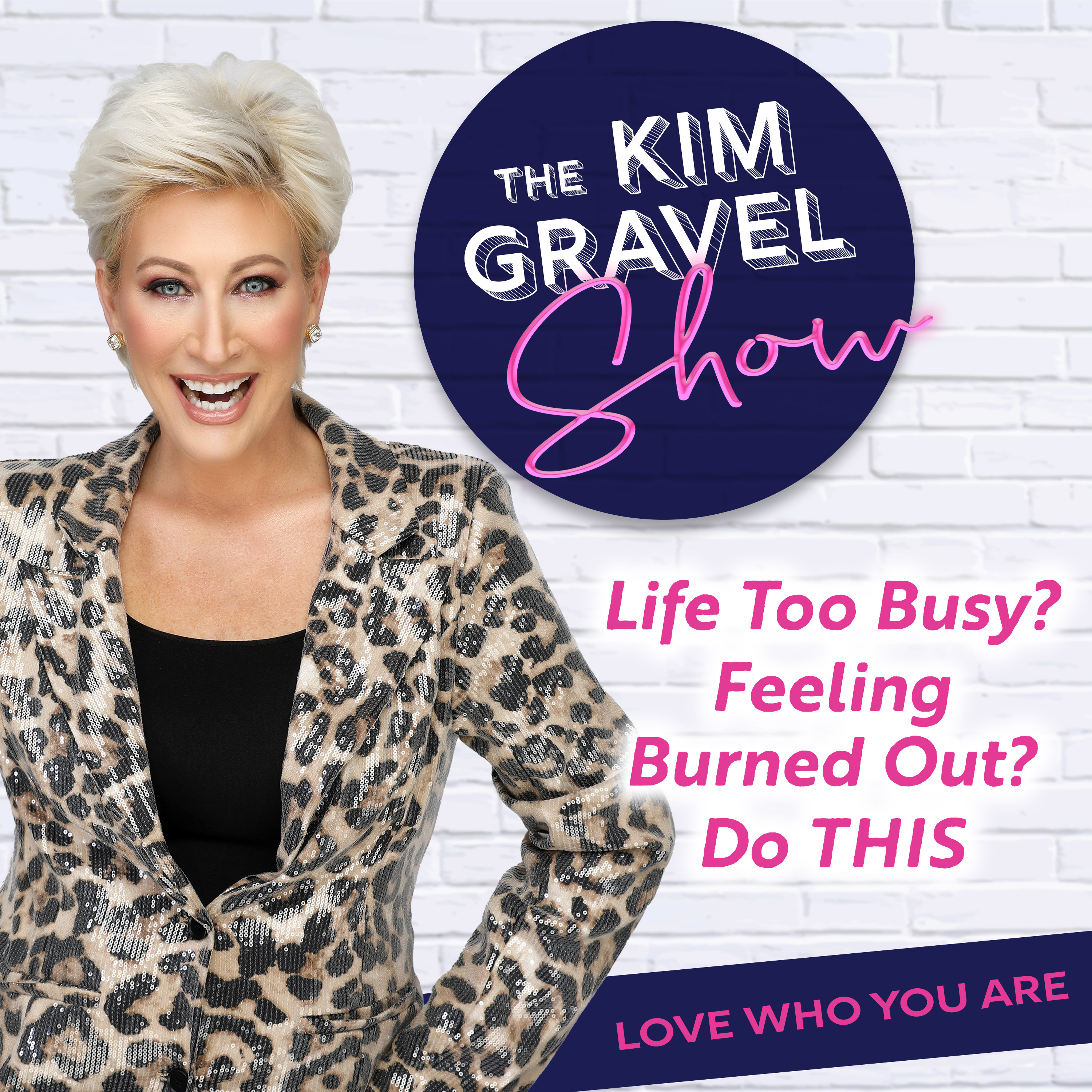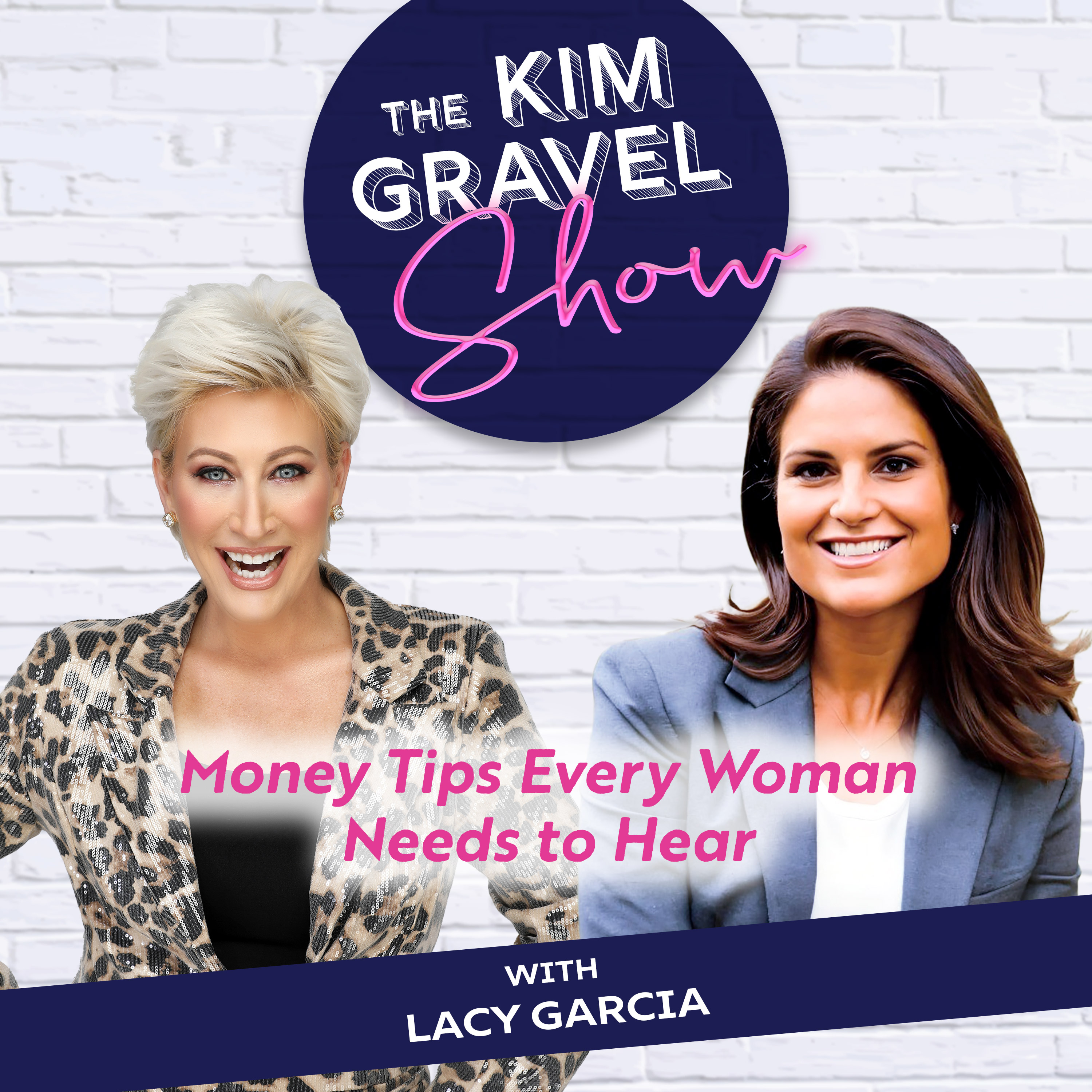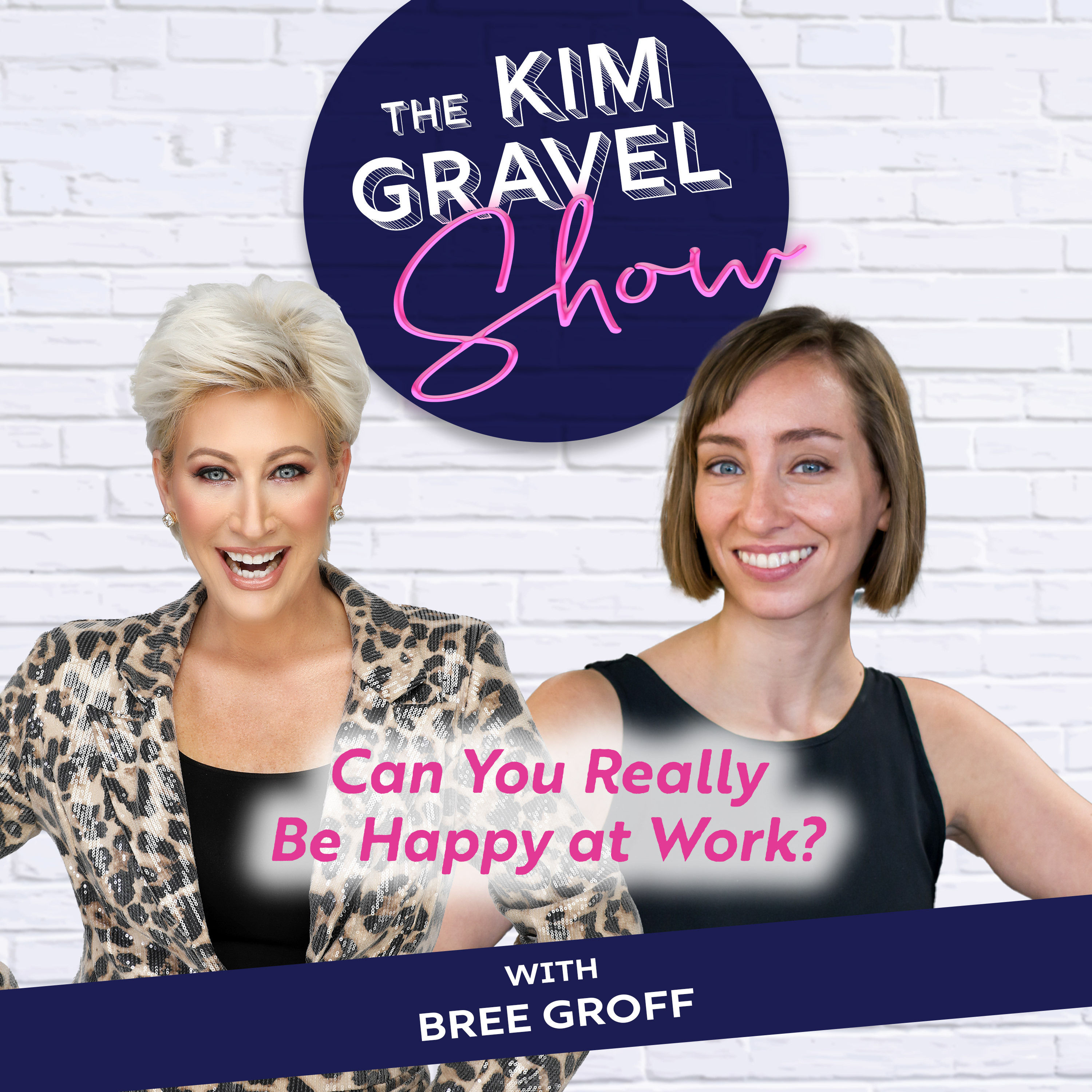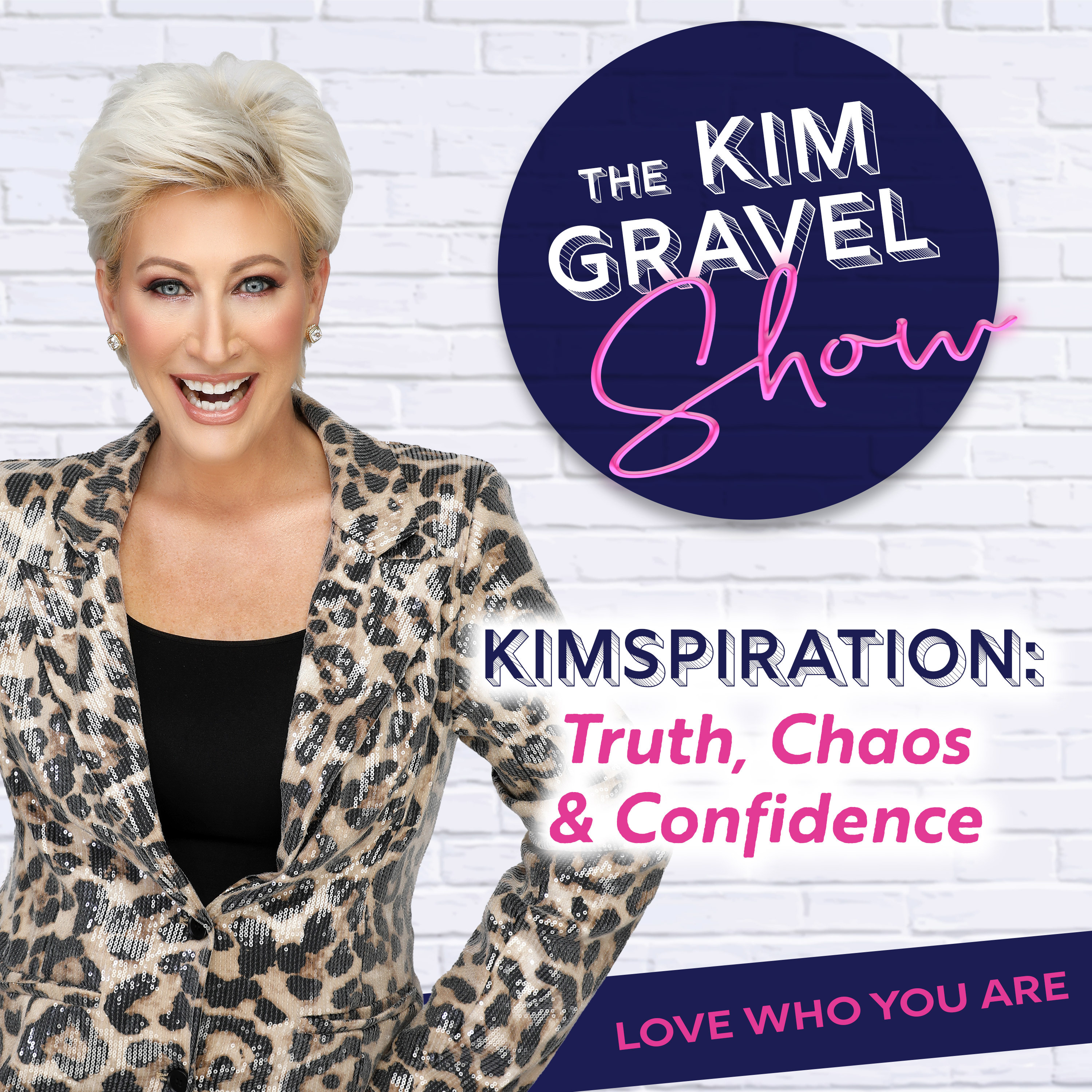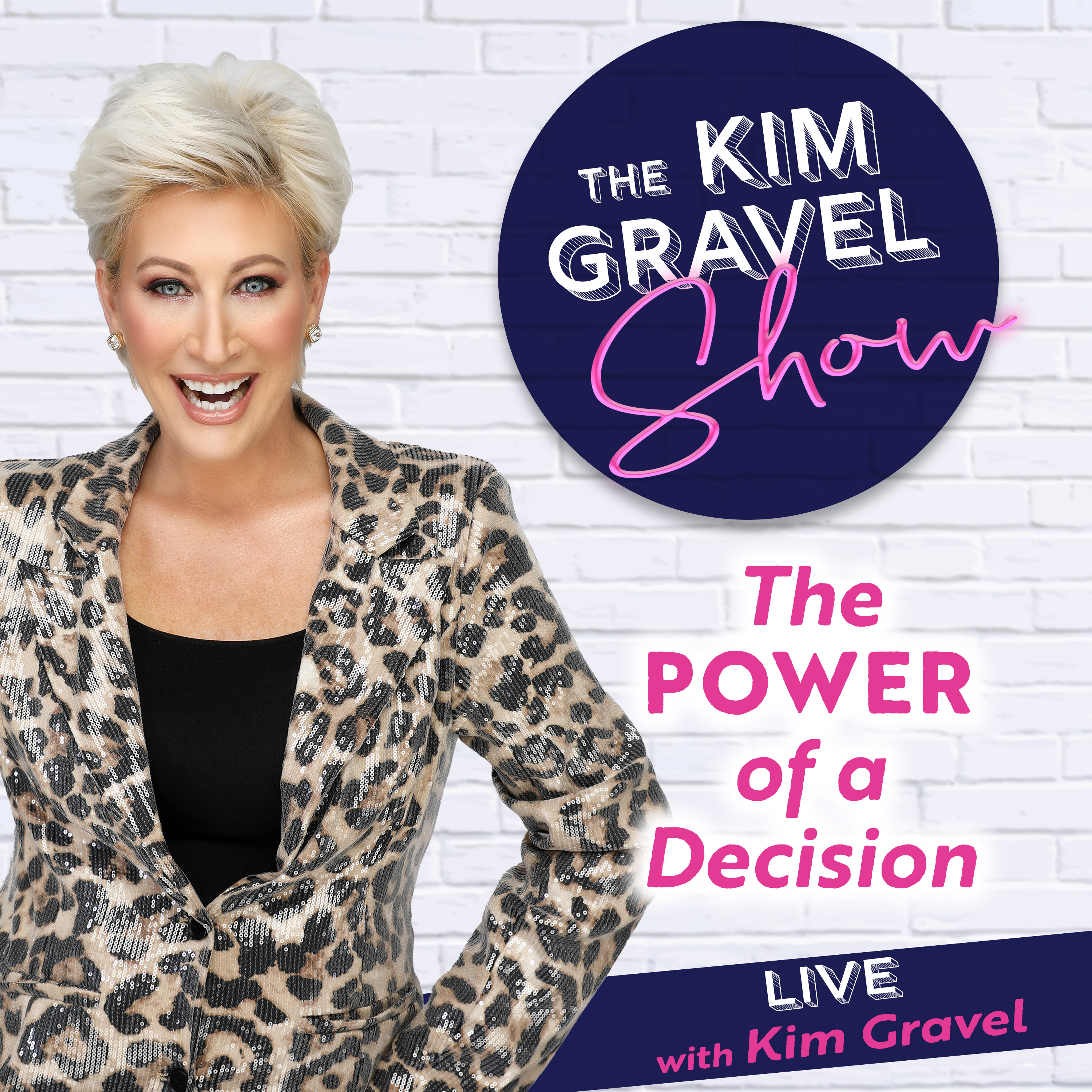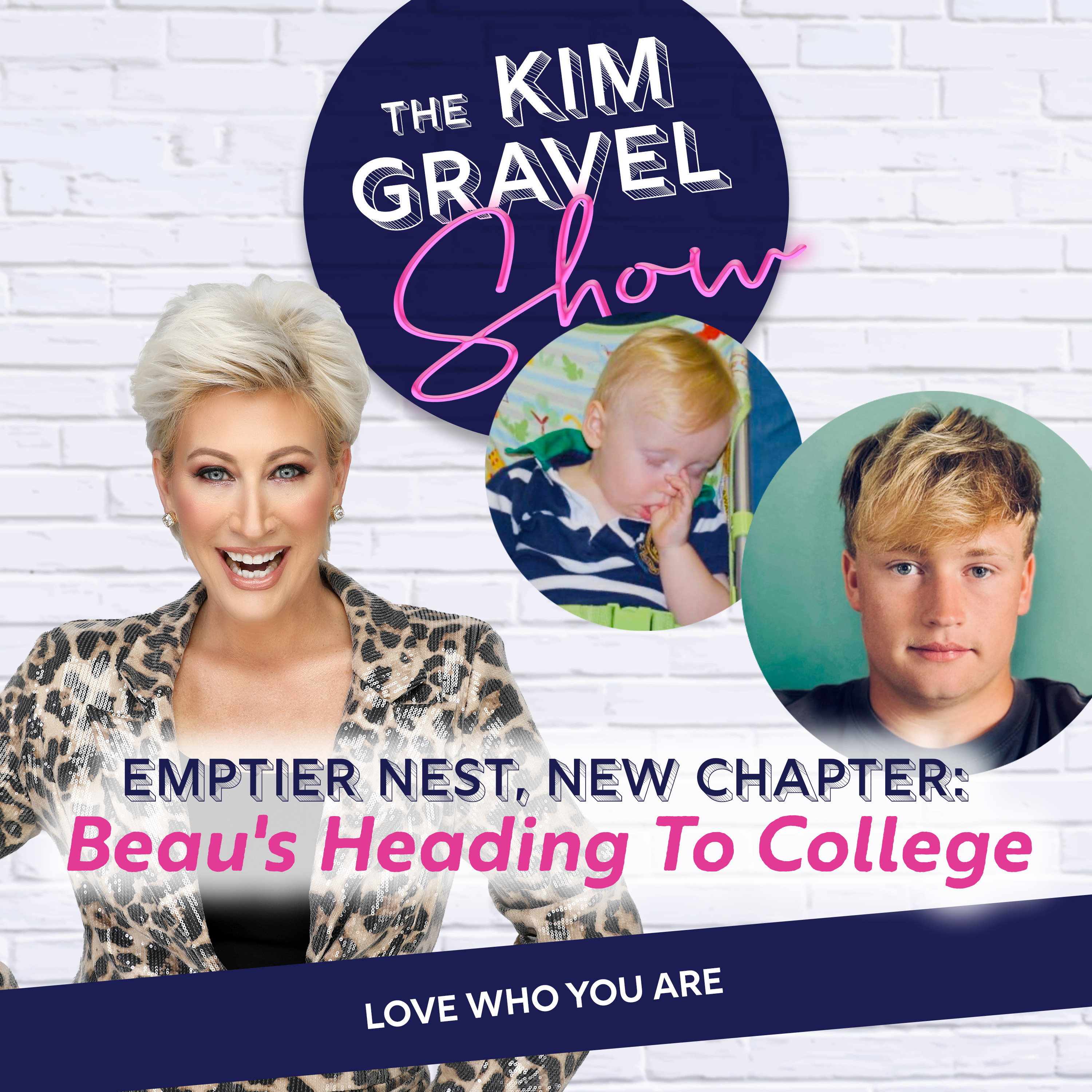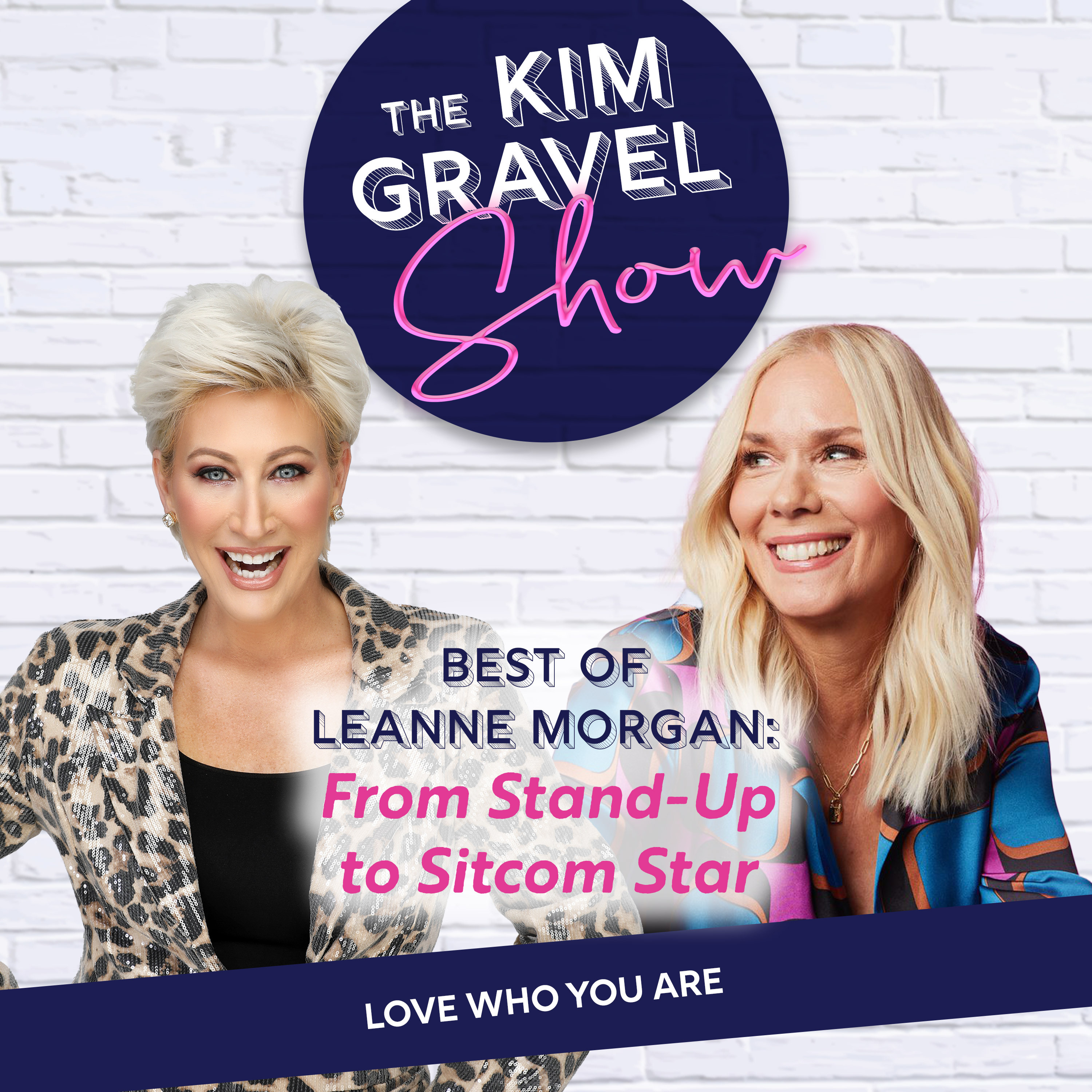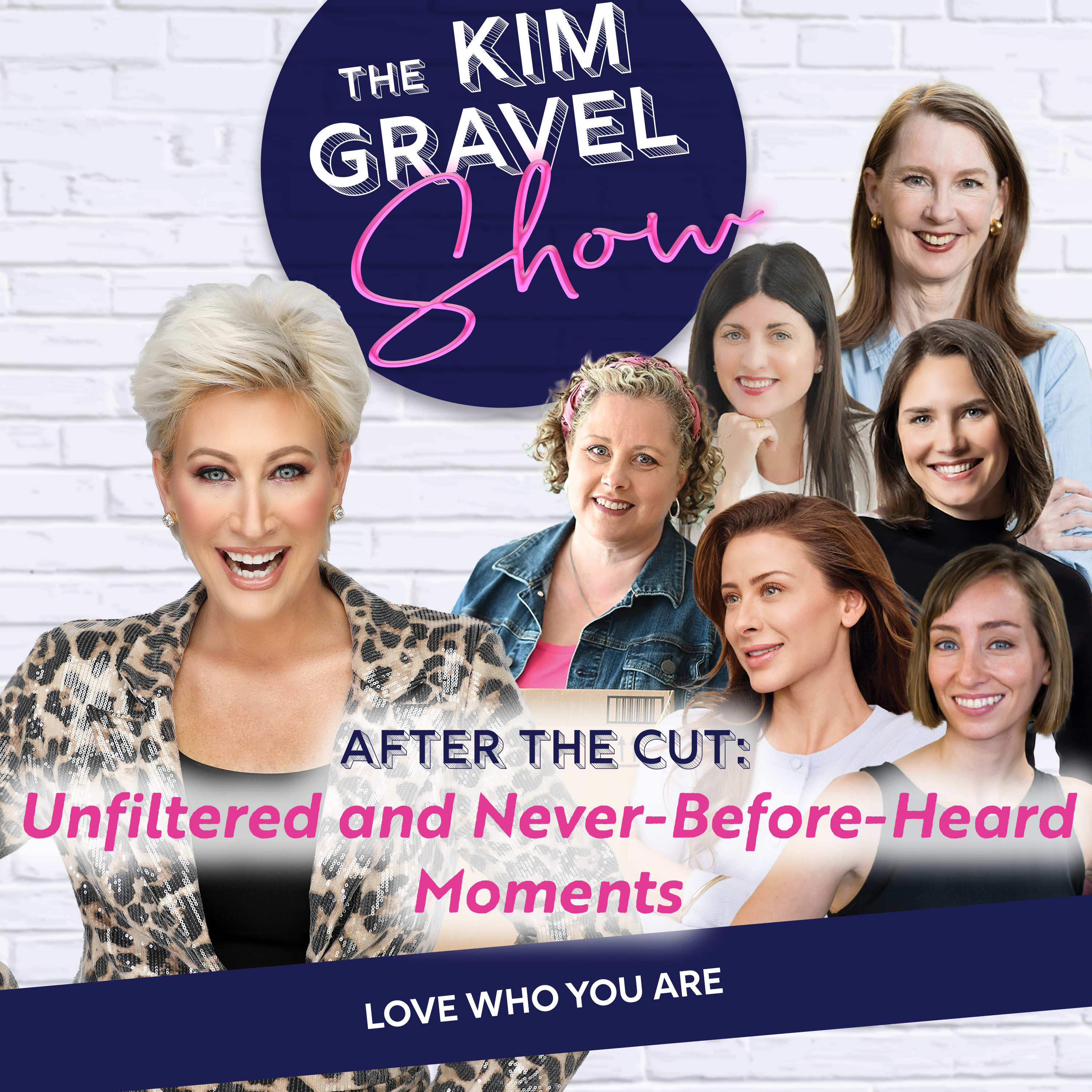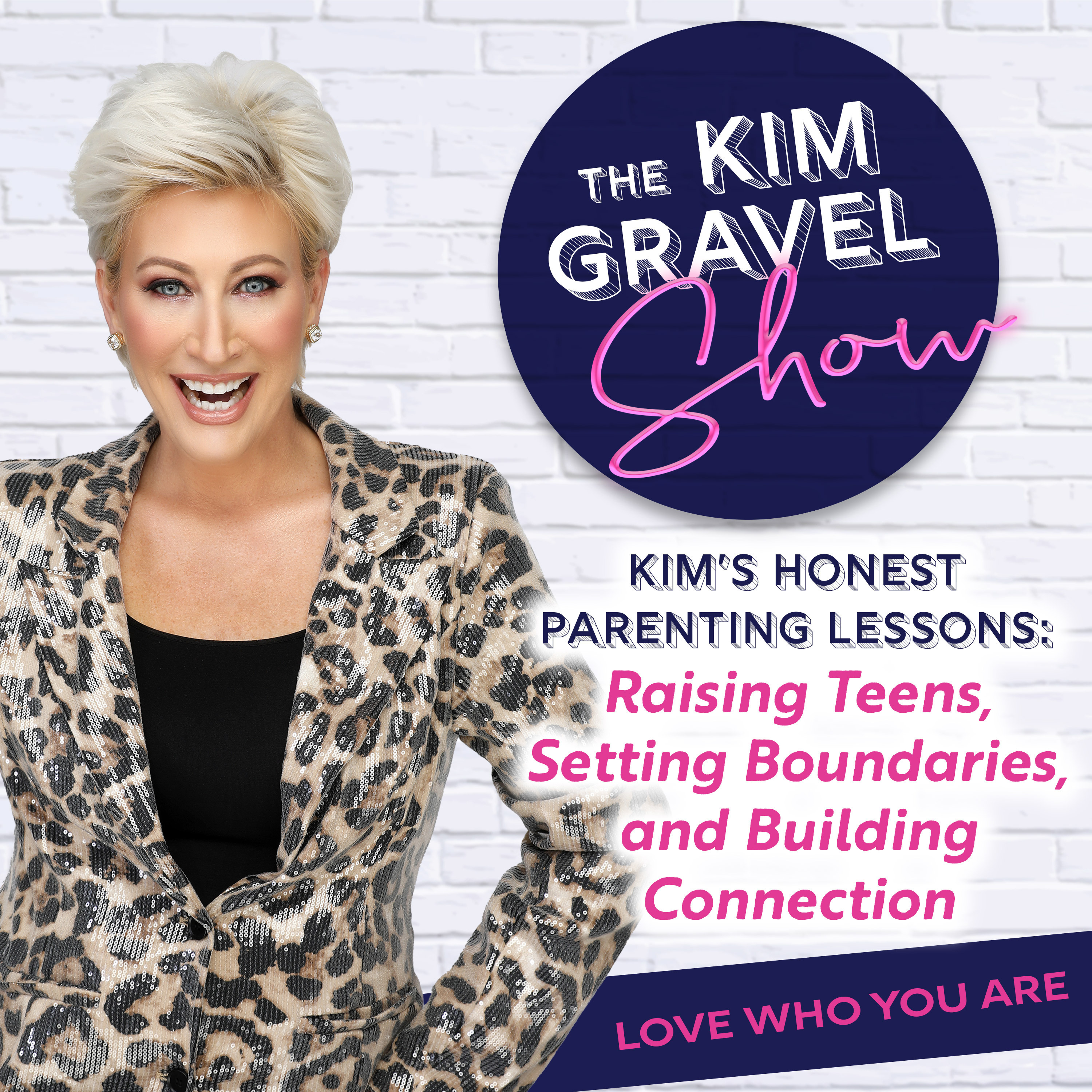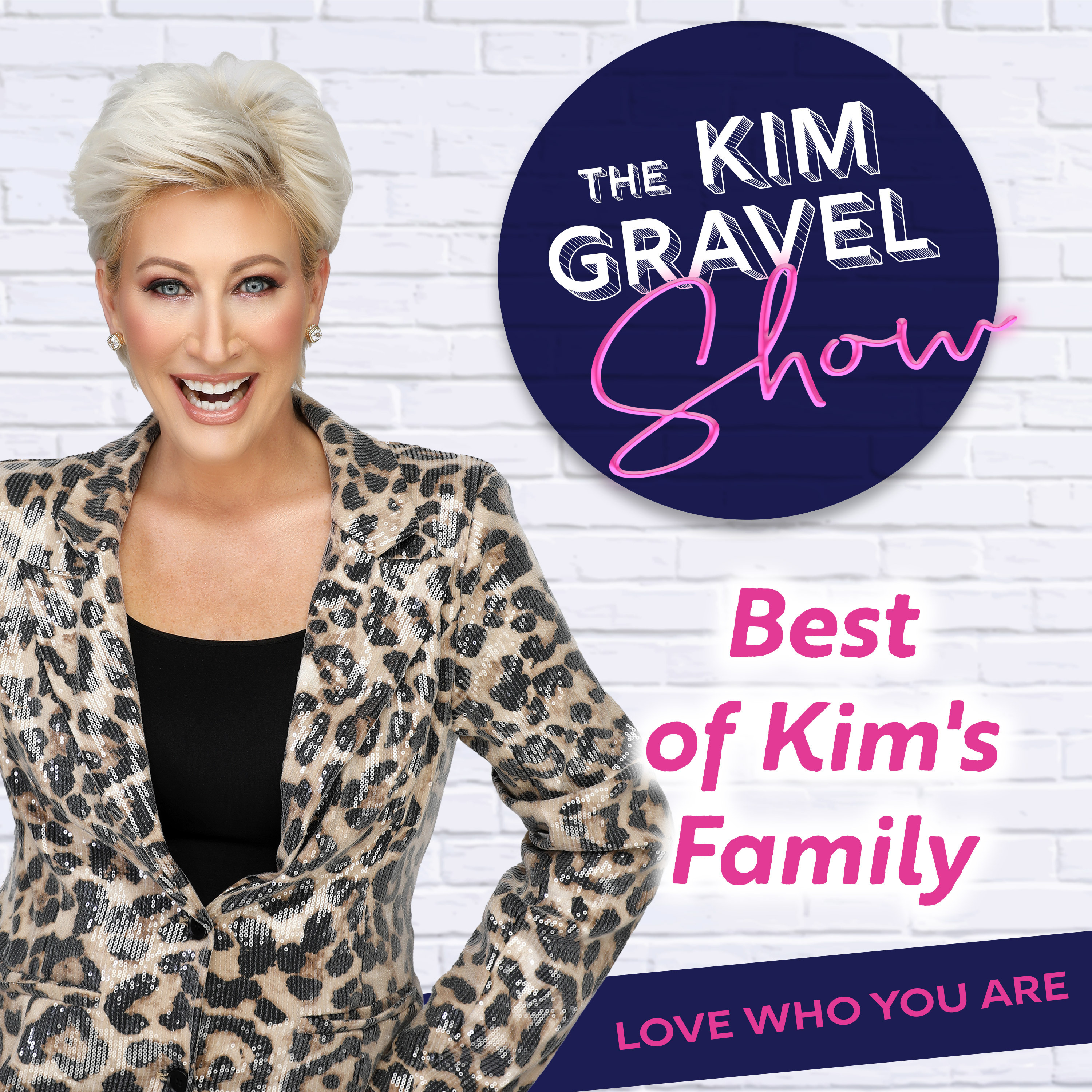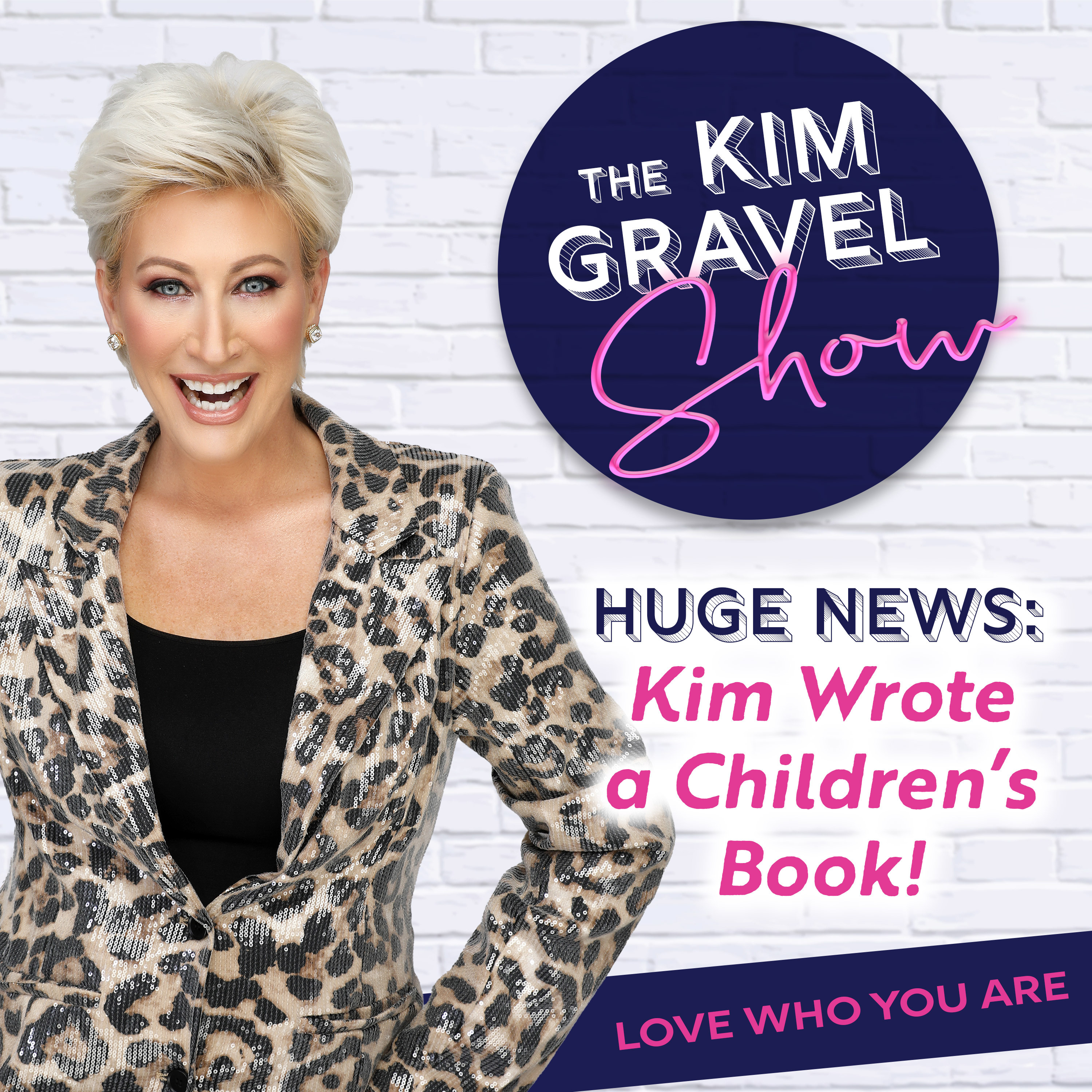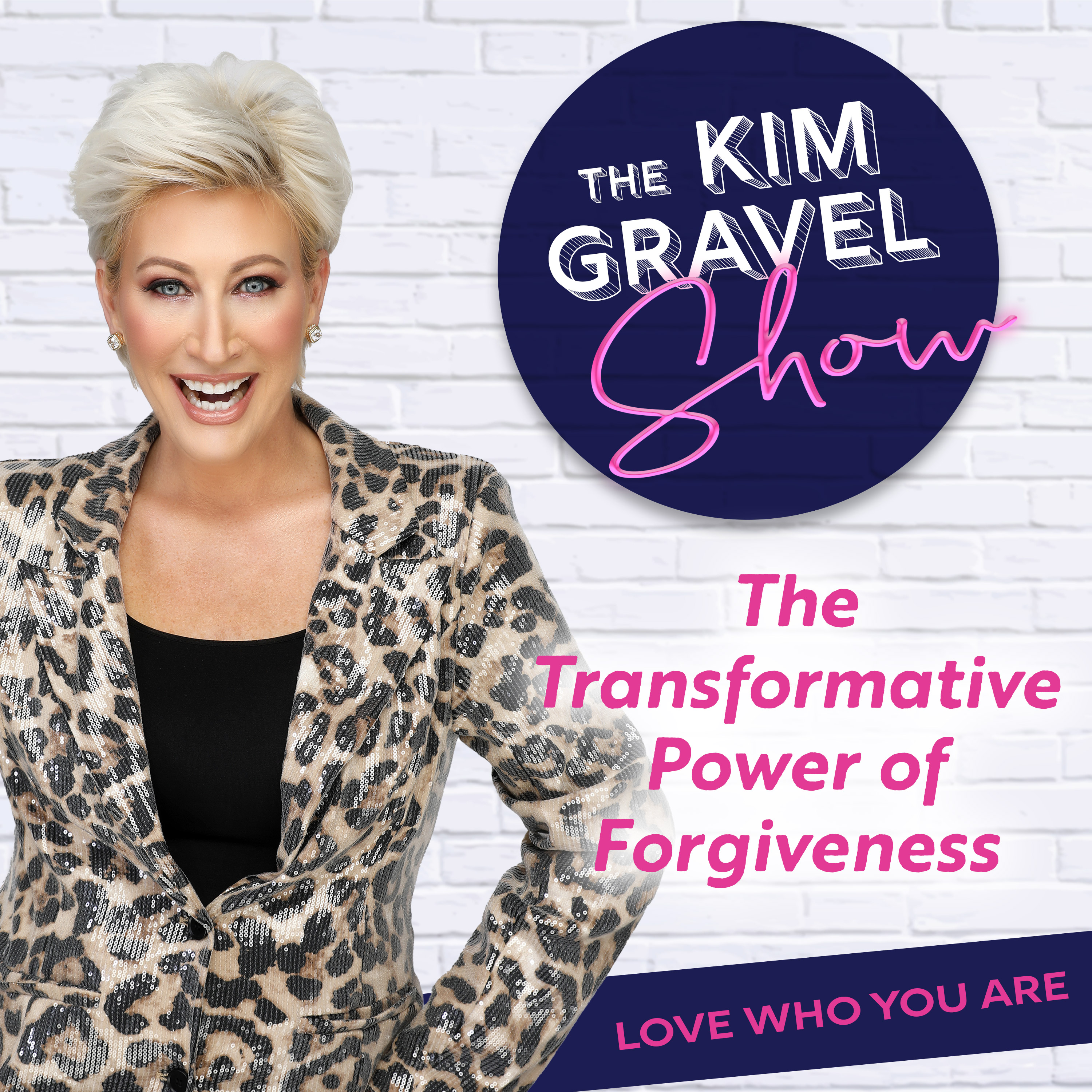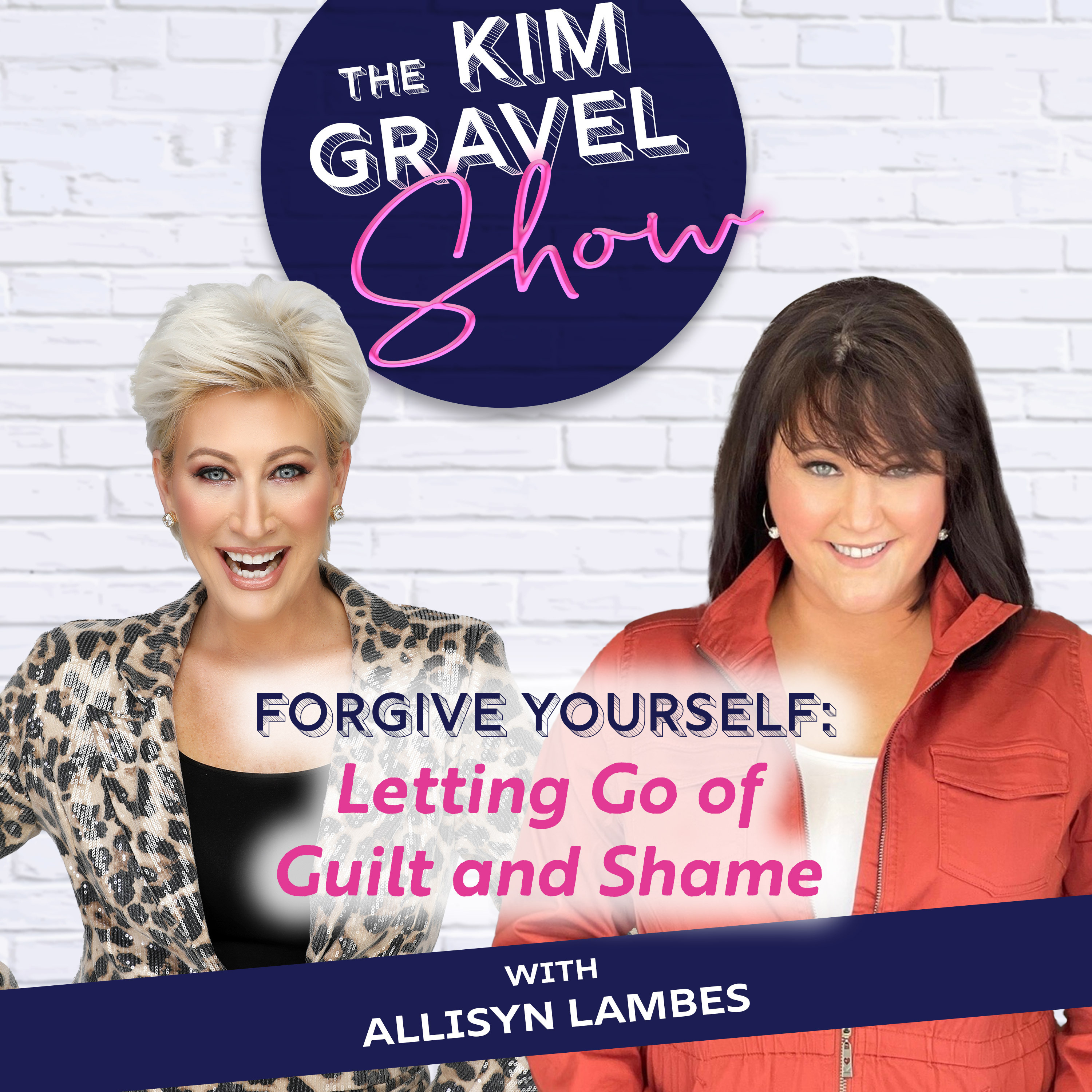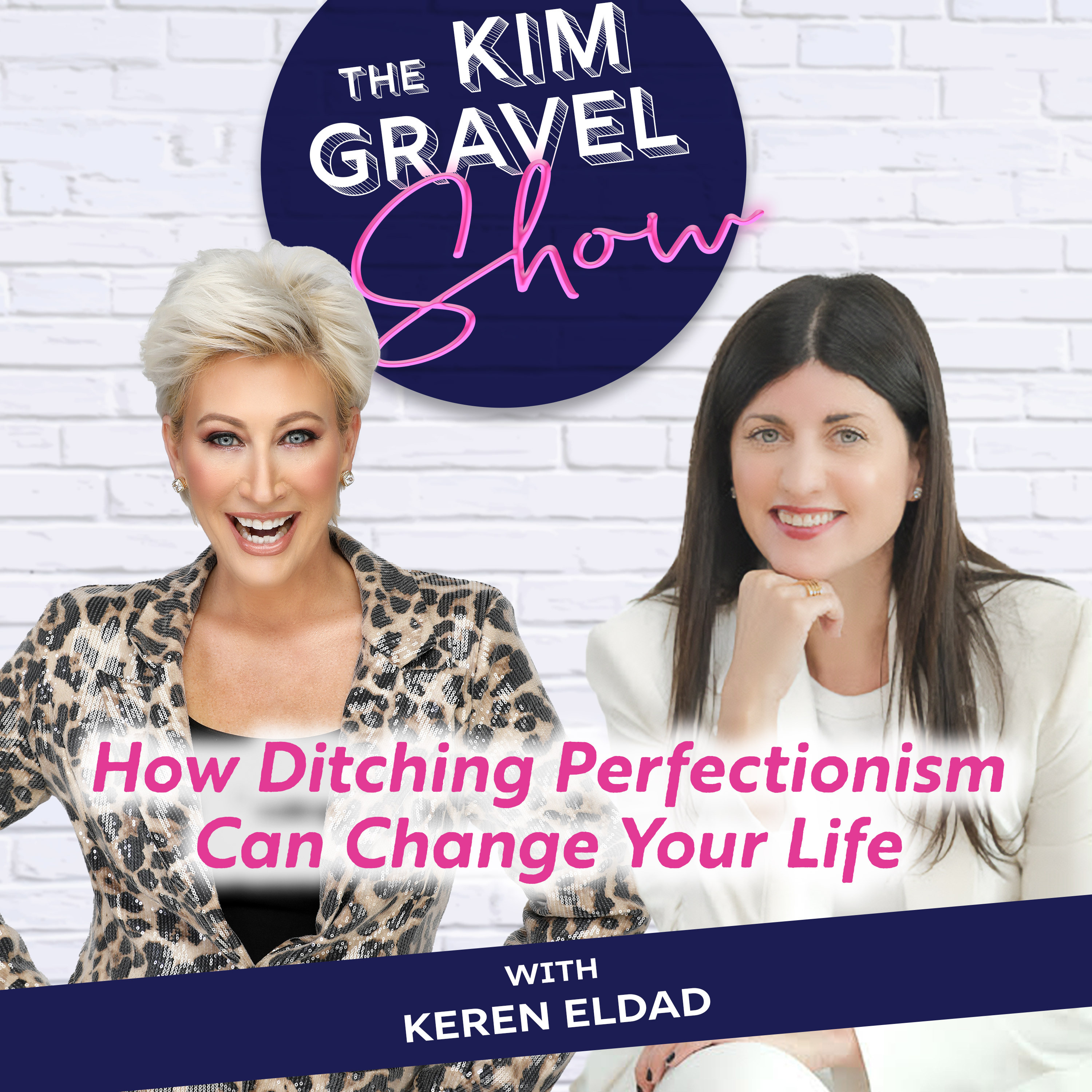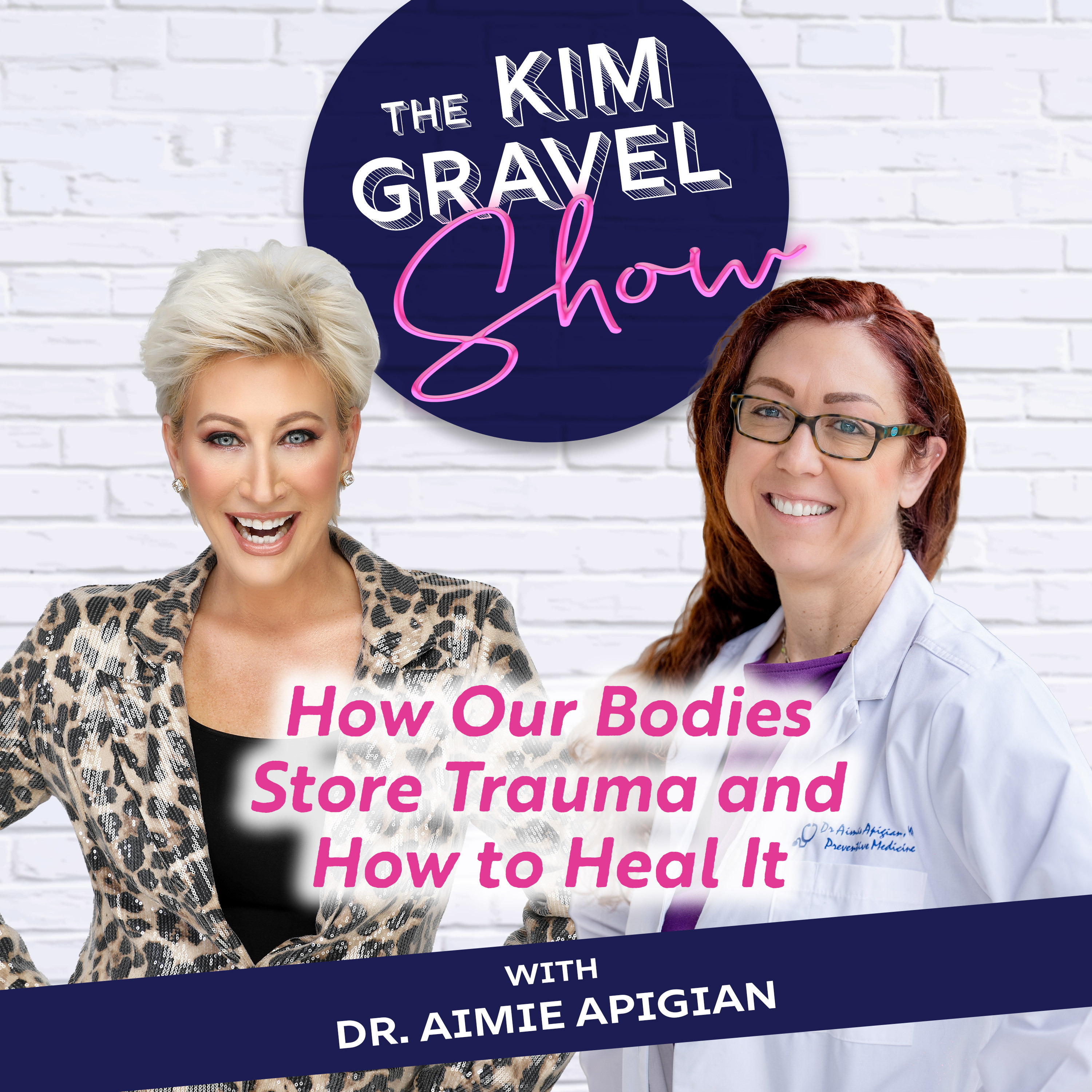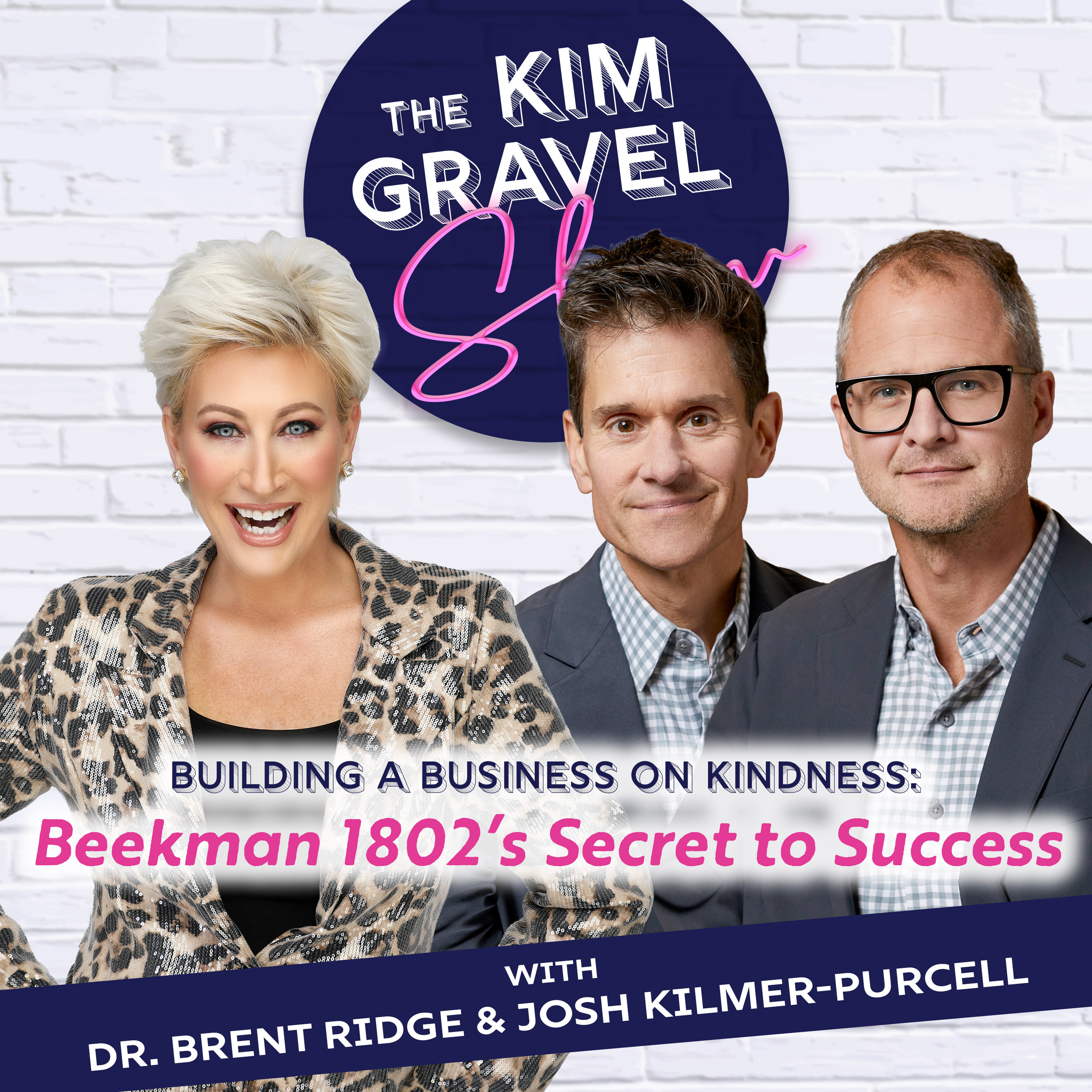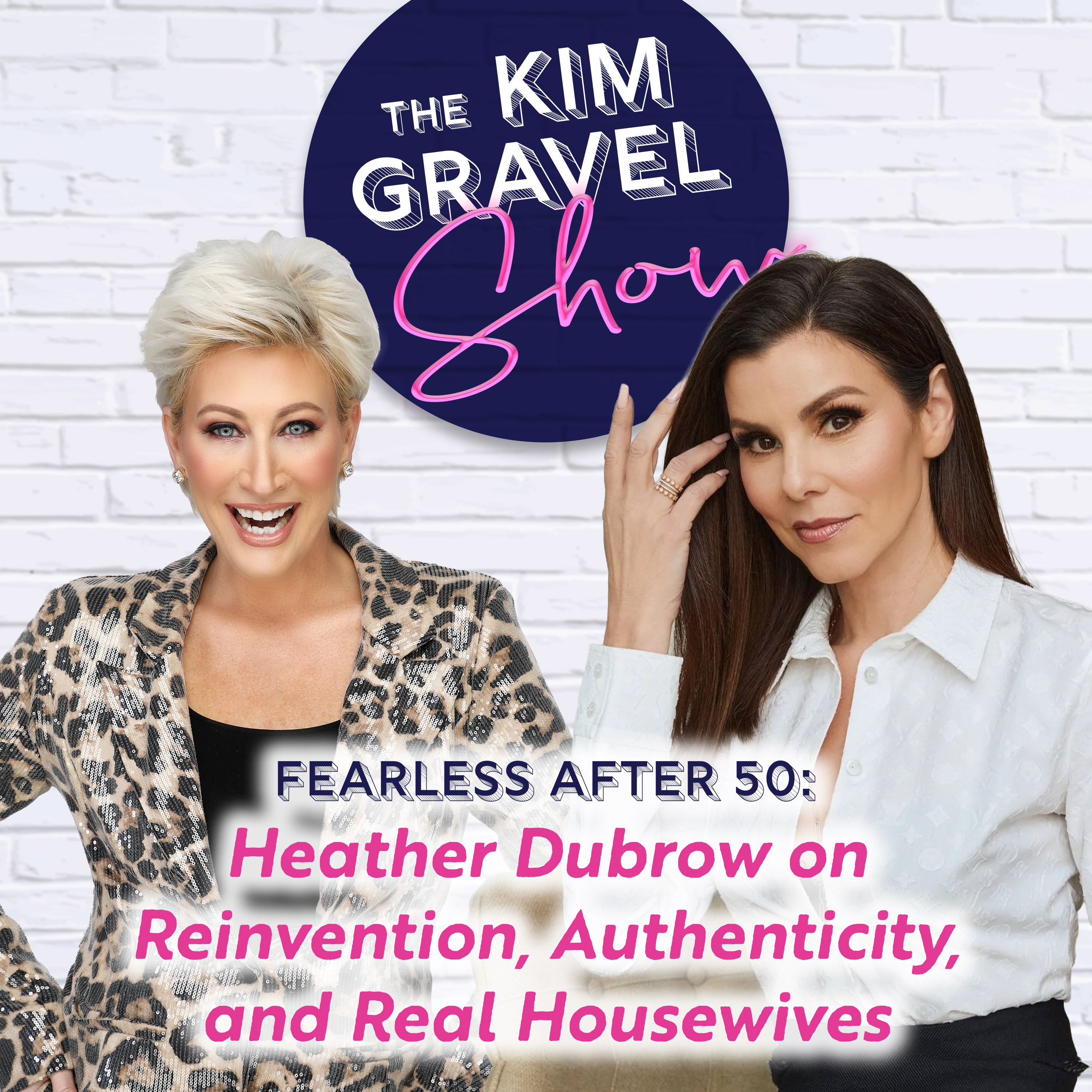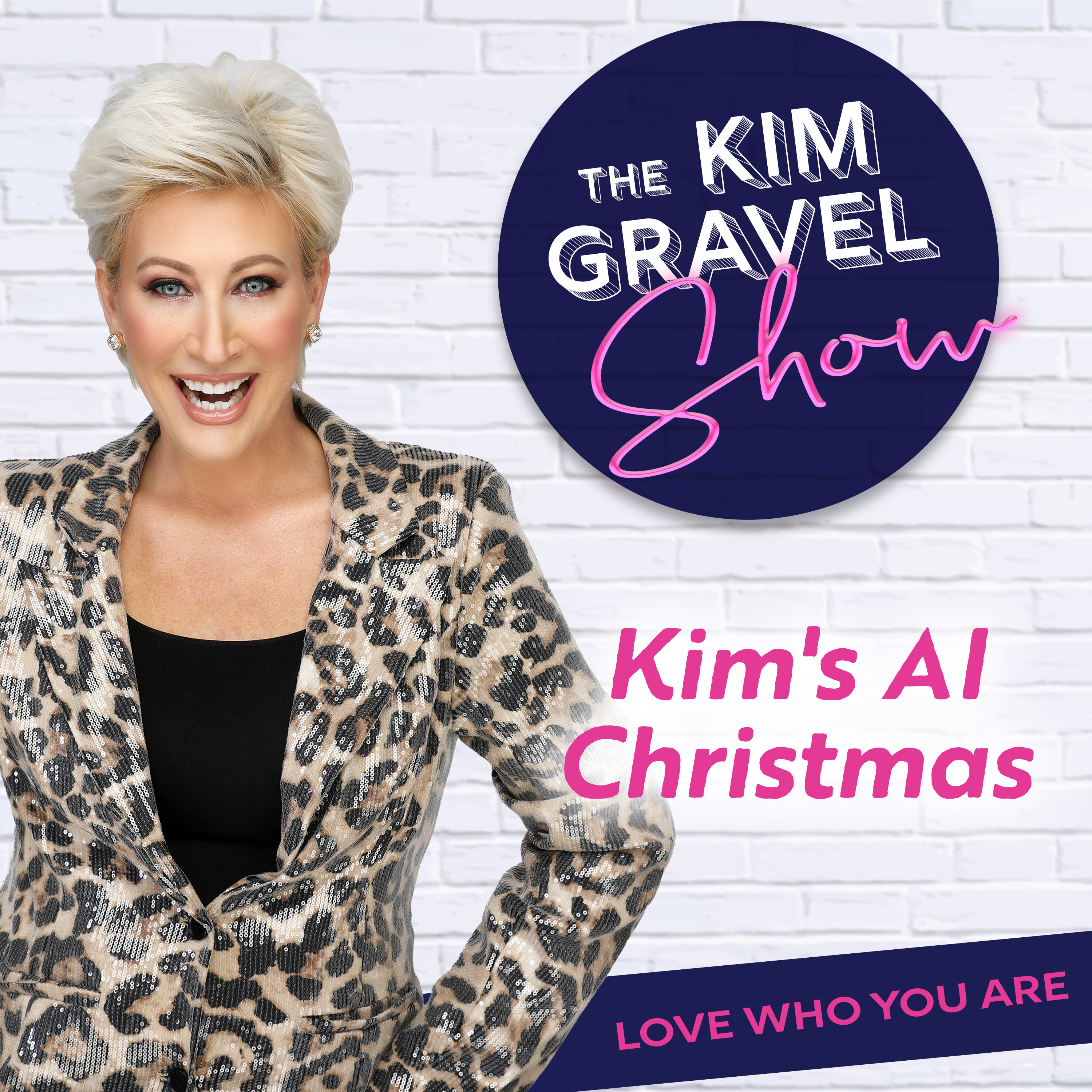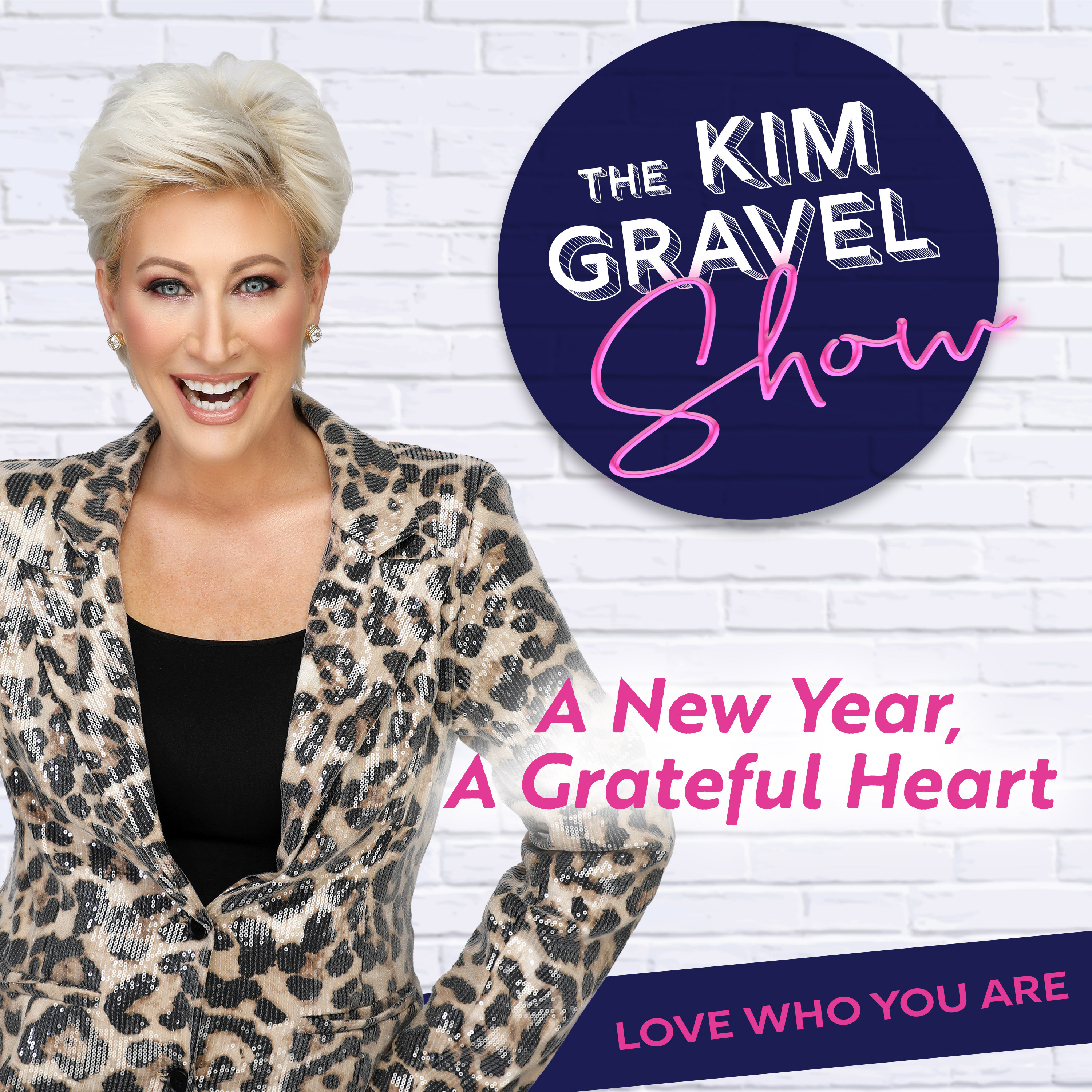Expert Tips For a Stronger Relationship with Julie Menanno
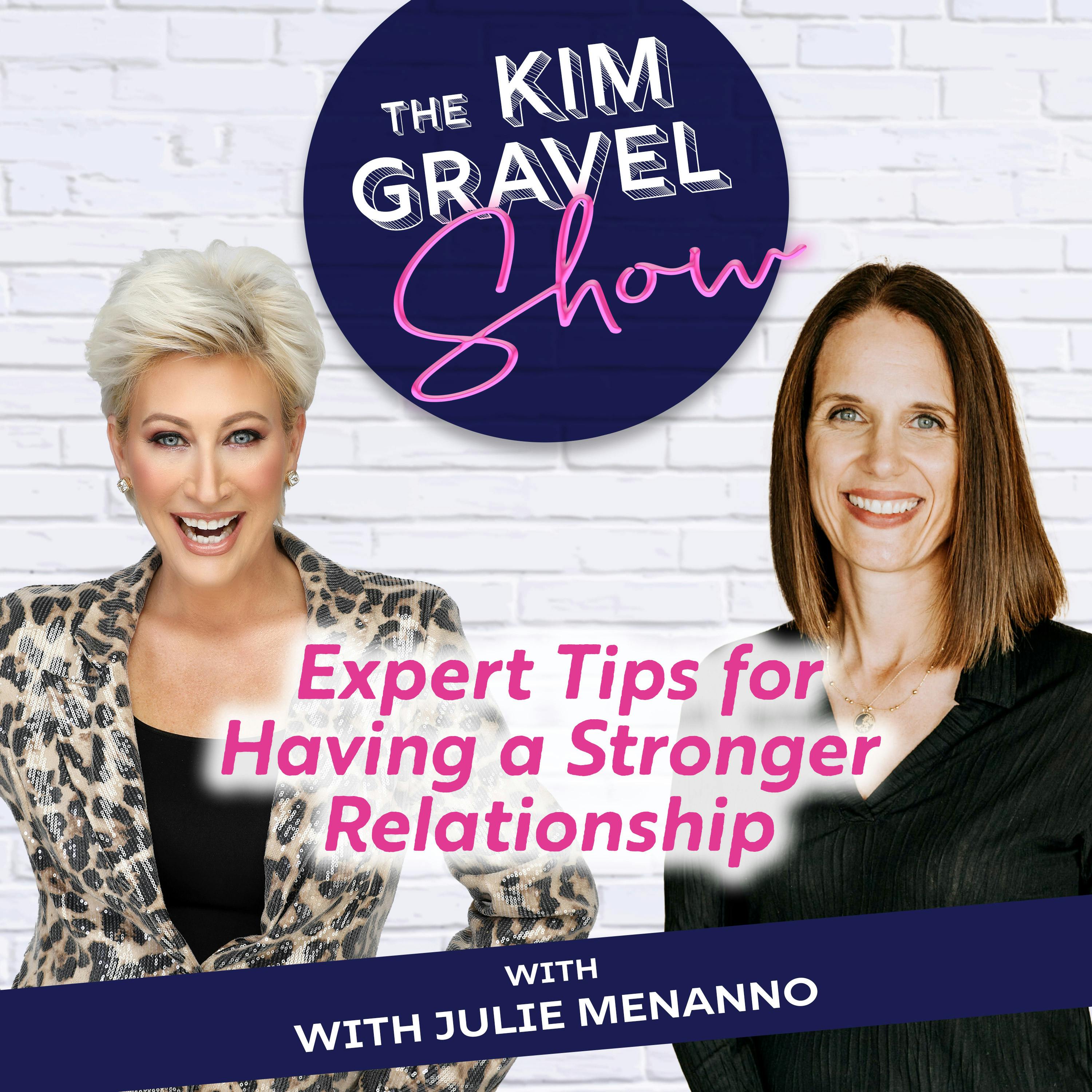
If you have the perfect marriage, then skip this episode. But for the rest of us, buckle up because you’re going to hear incredible expert tricks that you can use to grow closer with your spouse.
Julie Menanno is one of the top marriage therapists in the country, and she brings so much wisdom and actionable relationship advice to this episode. Julie shares profound insights into attachment styles, explaining how understanding our emotional needs can revolutionize our relationships. Trust me, whether you're married, dating, or single, there's so much value in understanding how unmet needs and emotional connections shape our interactions.
But that's not all! Julie shares her nuanced perspectives on social media's impact on mental health, especially for our kids. She doesn't just talk the talk; she walks the walk by giving practical tips for creating a safe and emotionally healthy environment both online and offline. Julie’s expertise on creating emotional safety and better communication in marriages is one everyone should hear.
If you want to form a closer connection with your partner, this is a can’t miss episode.
You can find Julie's book here: https://a.co/d/ff6q69V
Here is my favorite quote from this week's episode:
"You want to create a safe relationship through communication where couples trust that the process can work and that they will be heard." - Julie Menanno
Do you want to hear your voice on the show?
Call me and leave me a voicemail at 404-913-6460 and let me know why you love who you are!
There is BONUS CONTENT in our free newsletter so make sure to subscribe at https://www.kimgravelshow.com
Collecting Confidence, my best-selling book is now available in paperback with a brand new discussion guide!
Click this link to buy it now
Join my Love Who You Are movement at https://lwya.com
Connect with Me:
Connect with Julie Menanno:
New episodes of The Kim Gravel Show drop every Wednesday at 6pm EST.
Support our show by supporting our Sponsors:
Midi Health
Midi is a virtual care clinic on a mission to bring compassionate, high-quality medical care to women.
Head to https://www.joinmidi.com/
FACTOR is America’s #1 Ready-To-Eat Meal Kit. You’ll save time, eat well, and tackle everything on your to-do list this summer.
Head to https://www.factormeals.com/kim50 and use code kim50 to get 50% off your first box! Plus get 20% off your next month while your subscription is active!
*This transcript was auto-generated*
Kim:
This episode is brought to you by the fights married people have. I want you to proudly display the ugly art that your in laws gave you. I want you to load the dishwasher the wrong way. I want you to leave your socks on the floor 2ft from the laundry basket. I want you to lose the remote again and again and again and use the wrong towel and buy the wrong toilet paper. I want you to forget your anniversary again. And I want you to watch our Netflix show without me. And most of all, I want you to explain Star wars to me for the 400th time.
Kim:
Because we both know I'm always gonna win, y'all. Travis, I love you. But, honey, if mom ain't happy, nobody's happy. Remember that. Roll to the intro, Zac. It's gonna be a good one today.
Introduction:
This is The Kim Gravel Show.
Kim:
This is probably one of the most important subjects known to man. What does it mean to to have a secure relationship?
Julie Menanno :
If you're over communicating, you're probably not communicating.
Kim:
Ooh. Even though you've lived with somebody for 20 plus years, it still takes watering.
Julie Menanno :
A lot of times people are just kind of going back and forth between self blame and other blame, and we just gotta really move out of that and figure out what are the unmet needs here.
Kim:
Oh, my gosh, Zac, she cease me. You've just nailed it. I've been healed, people. That's my next book. Sex overrated.
Julie Menanno :
Okay, this is the funniest thing I've ever heard in my life.
Kim:
All right, Zac, we have got an amazing guest. You know, when I start in singing the intro, Zac, you know it's gonna be good.
Zac:
You know, always.
Kim:
This is always because Julie Menanno is on the show this week. Now, she's a licensed clinical professional counselor, which always scares me a little bit when I have those professional people on. Cause you know I'm crazy on a one arm paper hanger. She's a marriage and family therapist. She's a relationship coach. Her bestselling book called Secure Love Create a relationship that lasts a lifetime, which is what we all want, is out. And she's just launching her new podcast called the Secure Love podcast, which features real time couples therapy. This woman has six children, a husband, and a dog.
Kim:
She's got her hands full, but she knows what she's talking about. Everybody, let's welcome Julie!
Julie Menanno :
That is amazing.
Kim:
Okay, we spared no expense.
Julie Menanno :
Amazing. I am so sad that I did not record that just now for my husband.
Kim:
Oh, we've got it for you.
Zac:
I'm gonna send it to you. You can have it. It can be your husband's ringtone when he call it.
Kim:
Oh, listen, we're getting into husband's ringtones here in a minute. Listen, Julie, welcome to the show. Thank you. Can I just tell you, as a woman who's been married over 23 years with two teenage children, congratulations.
Julie Menanno :
First of all.
Kim:
No, no. Where have you been all my life? I need you. I need you on this show. I selfishly booked you on this show for me.
Julie Menanno :
Okay, great. This is my favorite zone, is working with people, so.
Kim:
Cause all of us need you, babe. We need the book, and we need you.
Zac:
I told Kim before we started, I was like, feel free to just, like, air grievances, Kim. Like, you should just get into it.
Kim:
Listen, I've got my list, okay? I brought my list. I'm taking full advantage of your professional counseling background.
Julie Menanno :
Okay?
Kim:
This is probably one of the most important subjects known to man, and I think it is something that everybody wants is that perfect, romantic Bridgerton meets, you know, pride and prejudice relationship of all time. Everybody wants it. Of course, I'm telling my age here, but whatever. What does it mean to have a secure relationship, and do most of us already have it?
Julie Menanno :
You know, I don't like to speak in absolutes. We all know. We all know the grandparents that have been together for 75 years where grandpa doesn't say much and grandma's always the one doing all the talking. And, yeah, they've worked. They're. They've worked it out, and we love them. Right. Um, and there's nothing bad that I can say about them, but maybe there is a closer bond that they could have had through all those 75 years.
Julie Menanno :
So I'm just here to, like, say, hey, let's just kind of take what's working and expand upon that, or if it's really, really bad, you know, try to. Try to fix it, try to see what we can do here. And maybe it is better to kind of part ways. Right. Most of the couples I treat, I think, get to the point where they bond and they get close, and they learn to work through their problems in a way that doesn't harm each other emotionally, and that's where I want them to be, you know? But sometimes people just. It's not going to happen. So to go full circle, a secure relationship, I would say, is a really tight emotional bond where we're able to show up and be vulnerable with each other. We're able to connect not, you know, emotionally, through words, through touch, through sex, through enjoying each other together.
Julie Menanno :
Through sharing a life together. And then on top of that, we're able to navigate all of these logistical pieces of life in a way that is flexible and collaborative, and we work with each other, and we want to accommodate each other and also honor our own needs. And we're doing this in a way that isn't hurting each other emotionally, leaving each other feeling chronically misunderstood and validated, you know, attacked, all these bad things that people can do to each other, and. Yeah, so, I mean, that's just the most simple answer for that.
Kim:
Yeah. And I'm just gonna jump in and talk to you about my relationship. Cause I will tell you people, you know, I'm not a fairy tale type person. Okay, let me just. Let me preface. And neither is Travis, who is my husband. We are. We are almost, like, too much of realist.
Kim:
I mean, we have a romantical story in parts here and there, but mostly we are both fiercely independent, and we're fiercely. We have a lot of character and integrity. So our word is our word. And so marriage is that for us. I'm just giving you some of the big. Definitely in love. The passion and heat ebbs and flows. It's ebbing and not flowing right now.
Kim:
So I don't know what Ebb means, but it's not as much as the flow. So we've ridden that rollercoaster of marriage, but we're committed. We're committed. And I will tell you, like, there's times he feels more secure. There's times I feel more secure in our relationship. As a person who's been married 20 plus years. Can we get that secure fire and passion back? Like, it's here. The passion's here, right? I want it here.
Julie Menanno :
Yeah. So what I would do with that is I would really want to understand more about what you mean when you say that. Like, what are you hoping for? Like, do you want more of a feeling of knowing him, of connection? Are we talking.
Kim:
I know him very well. I know him a little too much.
Julie Menanno :
Maybe you don't. Maybe there are things.
Kim:
Here's the deal, all right?
Julie Menanno :
Does he ever say. Does he talk about his fears? Does he talk about, you know, when you say something to him and it triggers him, like, what's really happening for him if it is?
Kim:
I think he can as much as he can, you know, and I think. Cause I'm very verbal and, you know, and I don't want to put men and women in this. You know, he said, she said, men are from Mars, woman are from Venus, or whatever. You know, I really I really. We have an opportunity here with our children to really. And look, we've got a good marriage. It's a great marriage, actually. Like, I mean, we talk a lot, we work together, we dream together, we plan together.
Kim:
But I just remember when we were first starting out, the passion and, you know, I'm a woman. I do read books. I do, you know, all of the things that we do as women, that when he's really happy in it, I feel like I could use a little bit more. And when I'm really happy, he's like, I could just take a break. Not take a break from the marriage, but just take a break from this emotional excitement.
Julie Menanno :
Okay?
Kim:
And I know you. I know you. I know you counsel on this emotional therapy. I'm interested.
Julie Menanno :
Yeah. Yeah.
Zac:
Well, Julie, let me tell you this. Kim works with Travis, too. They work together.
Kim:
We're close. We're tighter than ticks, also. I mean, yeah, I mean, like, we read each other's minds and everything, but it's just, I know there's a lot of people there that feel like me, that, like, wow, could this be more? Could this be better and more? And that's why I love your book, because you really talk about how to take action towards that.
Julie Menanno :
Yeah, I mean, I guess, you know, I. First of all, the relationship that you're describing sounds very similar to my relationship with my husband. I mean, the fiercely independent but also very connected dreams together. You know, we don't really have. Have the same value system, the same goals with our children. Yeah. I mean, we're not just, like, the lovey dumb making out.
Kim:
We're not.
Julie Menanno :
Yeah, exactly. And we were, you know, at one point in our lives. But I think, like, it's just these beautiful moments that kind of. We've learned to bring into our relationship that were never possible in the past. Like, for example, you know, my husband does a lot of. He's one of these people that does a lot of complaining about the state of the world today, you know, how bad things are today. Is that how Travis is?
Kim:
No comment. I'm just saying we are very parallel. Very parallel here.
Julie Menanno :
Okay. Okay. And so. And so sometimes I get annoyed. You know? I'm just like, oh, my God, just enjoy the way things are. Like, there's a lot of good to be said about the world today, too, and kind of out of balance here. I've learned now, instead of moving away from that, I've learned to really lean into that and be like, well, help me understand when you see something that's triggering and that triggers that place in you that, oh, my gosh, everything's wrong. Help me understand what comes up for you.
Julie Menanno :
I guess it sort of sounds like I'm therapizing him, but it's not really. It's more in the casual conversation context. I've learned to really be able to access his fears and his feelings and him put a. To be more able to put richer words to his experience and what the sadness is there. And there's a lot of, like, you know, grief, heaviness. Yeah, it's like him putting words to that. Not only is it nice for me to know him, it's really beautiful to see him get to know him in that way instead of just sitting up here and talking about the triggers, you know, all the things that trigger all of these beautiful places of humanity inside of him that he's just not used to putting words to. And so, you know, one day we were out on a hike talking, and he's not a big crier.
Julie Menanno :
I mean, I've seen him cry when his dad died, when his mom died, but, you know, he's always more of this, you know, try to, you know, stoic kind of guys. And so I was talking to him about these deeper places underneath these complaints he has, and he started choking up. And he was like, he said, like, it makes me want to cry. It was like, I'm starting to cry a little bit. And it was just like, yeah, I mean, I'm getting chills just talking about it. Like, me getting to know that part of him is wonderful, but I think it's experiencing him, getting to know him that he's never been able to put words to those places. No one ever asked him growing up, talk to me about your feelings. You know?
Kim:
Right, right.
Julie Menanno :
He was eleven of 13 kids. Like, he had to stuff it down. And.
Kim:
And a man. And a man, exactly. And a man.
Julie Menanno :
Exactly. And he did. He did really well in life. And I don't want to take those parts away from him that learn to be strong, you know, be emotionally strong. But just bringing this new piece to him is. It's really beautiful. It feels very, very connecting. And then when I feel that, that does make me more open to sex, you know, it's just like knowing him and, you know, and then he's happy about that.
Julie Menanno :
So then when it's a win win.
Kim:
It'S a win win.
Julie Menanno :
Yeah.
Kim:
So how much. How much of communication is in a healthy relationship? How much is. Can you over communicate?
Julie Menanno :
Oh, I think so. But if you're over communicating you're probably not communicating. You know, healthy communication is fairly efficient.
Kim:
So that is good. Say that again. Say that again.
Julie Menanno :
Healthy communication is fairly efficient. You know, people tend to over communicate when they're not really getting their needs met. They're not really getting to the heart of the matter. They're kind of circling around it, circling around it, circling around it. And they're just. They keep going because they're just so desperate to be heard and understood or communicate what's going on with them. They just don't know how their partner isn't knowing how to receive it. And so, you know, it's just there's so much.
Julie Menanno :
The conversation they're having isn't really the conversation they're having.
Kim:
Well, that's why I love your book. And y'all have to go get Julie's book. I'm telling you so. Good. Because it talks about how you have, like, you have actual, like, break it down conversations. Like, how do, like you'd say, try to say this, say that y'all have got to. And to me, that is just because even though you've lived with somebody for 20 plus years, you love them with all your heart. You share, you know, your life, your kids.
Kim:
You're finding everything together. You know, it still takes watering. You know, it still takes a little fertilizer.
Julie Menanno :
Yeah.
Kim:
Okay. So you've outlined in the book something I thought was so profound. Okay. You call it this attachment styles. Can you tell me about each of those so everyone listening can also diagnose their spouses like I did? No, I'm just kidding. Like, you love it, but it's good. A lot of times, I think in a marriage, when you're arguing or you're not in sync or you're not that secure, you look to blame. And to me, to me, you're looking to understand, right?
Julie Menanno :
You start to make sense of. The problem is, I'm not really feeling filled up here. Something about my body is saying, these needs aren't going met. Something doesn't feel right. I'm not where we want to be. I got to make sense of it somehow. So it's got to be you doing it wrong or alternate between. The only way I can make sense of it is you're not getting it right or what's wrong with me that I'm not getting it right, that you want to get it right for me.
Julie Menanno :
Correct. A lot of times, people are just kind of going back and forth between self blame and other blame, and we just got to really move out of that and figure out what are the unmet needs here. Right. How are partners kind of individual wounds that either they came to the relationship with or they created with each other, kind of blocking them from being able to show up for each other when they're getting triggered? And so to go back to your question about the styles, a really simple way to say it is like, what do you do and what do you feel when you have a relationship trigger, right. People can generally be categorized based on the feelings, what their fear, their relation, their core relationship fears are, and how they manage those fears. And so someone with attachment, they do not like to worry about you leaving them, and they do not like to feel emotionally dropped, period. They are not going to react well to that when they feel like. You can probably relate to this worry about your husband leaving you.
Julie Menanno :
Right. You probably feel pretty solid in the fact, but you might not like it when he's not validating your emotions or something like, yes, okay. Yes. That's probably just working with a lot of people. I'm going to assume that you're probably kind of lean into that more anxious. I'm not even going to say anxious. Maybe more of a person.
Kim:
Say it. I love this.
Julie Menanno :
Yeah. In the type of work I do, if someone doesn't have a full blown insecure attachment, they still might show up as more of that. That pursue partner that's really sensitive to emotional abandonment or emotional invalidation. So when you feel like he's not hearing your emotions, understanding your emotions, comforting your emotions, and trying to fix it or move you away or something that's gonna grab you, that's your. Ouch. It's like my trigger.
Kim:
That's my trigger.
Julie Menanno :
Yes, exactly.
Kim:
You just. Oh, my gosh, Zac, she's just. She's just. She sees me. You complete me. You completely do. Okay, go ahead. Okay, go ahead.
Kim:
Continue. You're nailing it.
Julie Menanno :
You're nailing it. If you have more of this kind of traditional, anxious flavor of showing up in the relationship, you might go into protesting last. You may have. I'm trying to be really careful here.
Kim:
No, girl, protest is my middle name. That is Kim protest. Crevel. You've just nailed it. I've been healed, people. I've been healed.
Zac:
All right, that's it. Great show, Kim. We'll see you later.
Kim:
We're gonna roll. Seriously, what do. Listen, no, Zac, you ain't cutting this one off. I want you to tell me what you mean by protest. I mean, I know what you said. Cause, like, a little thing jumped inside of me when you said it, but tell me what you mean by that.
Julie Menanno :
Oh, gosh. I mean, it really can look all sorts of different ways, but the general idea is you never just listen to me. Why aren't you there? Why can't you just validate my feelings? You're not understanding me. Here we go again. Once again, you're nothing.
Kim:
I say this probably to him 14 times a month. You don't hear me. You're not hearing me. You're not listening.
Julie Menanno :
Yes.
Kim:
Okay. Oh, I'm the biggest protester on the planet. Go ahead, continue.
Julie Menanno :
Okay. And so what you're doing, the heart of what you're doing is you're trying to close the distance. Right? You feel your body's on fire. It hurts. Nobody likes it. You know, it disrupts the feeling of safety and connection when we don't believe we can go to our partners with some emotional concerns and get that comfort that we're looking for, and we just need. It can happen so fast.
Kim:
And I get angry. Like, I'm. I'm a hothead.
Julie Menanno :
So your anger is your body saying, this doesn't feel good. This isn't where I want us to be. And that anger is. Is trying to motivate be heard, Kim. Understood? Yeah. It's trying to motivate change. It's saying, I need for you to change your response so I can feel close to you.
Kim:
He.
Julie Menanno :
This meanie, big words, attacking him. He doesn't really see that there's underneath that there's someone in there.
Kim:
Kind of people have told him, like, my mother and other family members, like, she's just menopausal. Yeah, yeah.
Julie Menanno :
Right, right. Of the problem and all through their own little limbs and.
Kim:
Yeah, I hope everybody is listening to this right now and hearing a. This. This is huge. Okay.
Julie Menanno :
Then we have the avoidant attachment. Their fears are more centered around wanting to get it right, wanting to be a successful. That is so him wanting to not fail.
Zac:
Yeah, this sounds like a guy more. Are guys typically this more?
Julie Menanno :
Yeah. 75% of those with avoidant attachment are male.
Kim:
I'm writing this down.
Julie Menanno :
25% is not a small number either. Okay. So there are many female avoidant. I mean, 25% of people with insecure. Of those with avoidant are female. So it does happen, but very typically, it is female anxious and male avoidant. So their kind of mo and the way they've learned to have an identity and sense of safety in the world is competence, fix it, strength, you know? And I. So what happens is then he lets you down.
Julie Menanno :
Now, that touches his. Ouch. Which is I'm failing. She's seeing me as not getting it right. I feel unappreciated. Here I am spinning my wheels, working my ass off to keep everything okay. And then now she's still unhappy. And here we go again.
Julie Menanno :
And then his response, if we're going to go down the typical road, is probably going to be getting defensive, trying to talk, trying to calm you down, you know, trying to tell you what he's getting.
Kim:
I love the air quotes. Calm you down in ways that really.
Julie Menanno :
Just make you more inflamed. And then, and then, so in, the intention is beautiful, right? He's really, he really is trying to, to help the situation. It's just that, you know, ultimately where he's going in his heart is, let's just keep this stable. Let's just keep this from getting escalated and worse. Right. And so he's just trying to sort of get you out of your, convince you to feel otherwise or whatever. And so now you're invalidated on top of invalidated. And now you're, you're even madder and you're hotter, and then you come in hotter.
Julie Menanno :
And then eventually, probably his reaction, if it's really a stereotypical, is going to be, shut it down. Just say what you want to hear. Yeah, tell you what you want to hear, or just stop talking about it. And then you probably say to yourself, oh, I shouldn't have brought it up to begin with. Why did I have to open my big mouth or something? And then you guys are in this kind of state of tension for a while, but then eventually you make your way back. Cause you miss each other, you love each other, your friends.
Kim:
We do. And it's not that serious. It's really not that serious. But to me, and it's really, yeah, of course. I mean, but at the end of the day, we're going to bed. Yes, we're going to do the work. But if we can come up with some ways to really have that security and that trust because for us, and maybe I'm speaking for a lot of people, when you are married a long time, it's a lot of investment. It's a lot of, like, and the grass is not greener, so it's a lot of investment always.
Kim:
It's a lot of investment in. And also, children do play a part in having a secure relationship. Do they or do they not?
Julie Menanno :
I mean, you know, it really depends on the couple. I mean, if.
Kim:
Motivation. Motivation.
Julie Menanno :
Oh, absolutely. Yeah, it is. I think I'm gonna probably, you know, it's hard to say. I don't know statistics on this, but I would say that, you know, people are more motivated to make it work when children are involved, and we love our kids so much like we want, you know, I mean, there have been times in my marriage where I have felt like if it weren't for the kids, maybe. I mean, this is, you know, I hear you. We started working on it, but it was like. I mean, it is a lot easier to walk away if you don't have kids relying on you for that, you know, structure and safety and not to be judgmental of anyone who does choose to. And that sometimes it is better for kids to.
Julie Menanno :
If their parents are chronically fighting. I mean, it is more stable for them. There's all sorts of different arrangements that can work. But, yeah, I do. I do think it's a strong motivator.
Kim:
Well, how do you have that secure love that you're talking about in the book?
Julie Menanno :
How do we get there, really? It's transmitted via communication. It's really, how are we talking to each other? Physical affection is communicative. I think humans, for the most part, know, are very. We're just verbal animals. Right. And so a lot of it is just how we're speaking to each other. I mean, I'll give you a good example. You know, my husband's a little more gruff.
Julie Menanno :
He's a great dad. I mean, just phenomenal dad. But he's a little more gruff than me, you know? Or at least I'll be gruff, but I at least know I don't want to be gruff. You know, he can be kind of committed to his gruffness.
Kim:
Like, they need all in. He's all in.
Julie Menanno :
Exactly. Exactly. And so I used to do this thing where I would just constantly, you know, micromanage his parenting. I was just like, don't talk to them like that, you know, and drove him crazy. Right. Because he's like, no matter what you do, I always have your back. And I fully admit I really didn't have his back, you know? And part of that is because I grew up with parents who weren't, who didn't, who did treat me kind of badly a lot of the time. And so I'm really sensitive to that.
Julie Menanno :
And so what I learned to do was instead of, like, going in and attacking him, it was like, you know, he needs help with his emotions in the situation, too. Right? He's a person, too. And when your kid's being rude. Yeah, we're adults, and we're not technically supposed to take it personally. But it does bring up a lot of feelings, even if it's just fear of how they're going to function in the world later, you know, and you feel like you've got to nip that in the bud right here, right then and there. And so the flavor of the communication now is more along the lines of, hey, listen, I get that, you know, your heart isn't helping them be better people, and I appreciate that about you. I mean, thank God that you are such an active role in helping form who they become. And I know that, you know, I appreciate you standing up for that in moments when things aren't going well.
Julie Menanno :
You know, I also know that both of us have had, you know, childhoods where maybe we weren't talked to so nicely. And I want to make sure our feedback is healthy and that they don't end up kind of struggling in the ways we had to. So can we try that different? And, you know, whatever comes from that is probably, for us at least, was way more positive and productive than the other route, which is just kind of criticizing and blaming and, you know, them defending himself and going, I need to. They need to know boundaries, you know, and things like that, which is all true. I mean, and there's truth to the fact that kids need to know how they're people. So it's just, it's just a more gentle way of bringing things up. But I'm not, not honoring my own needs for, you know, a different type of communication with our kids. And then I'm modeling to him the way I would like for him to communicate with them.
Kim:
Right, right. Teaching people how to treat you. What does the problem beneath the problem mean? Is that what you're talking about here?
Julie Menanno :
Like the problem beneath the problem in that situation? Let's say I did go in with heat and you're wrong and all this. Okay. So now the real problem, first of all, before we even get to the way that we're talking to the kids, is him not feeling understood, him not feeling like his needs matter, him not feeling validated, him not feeling appreciated for his involvement in the kids lives to begin with, that he's not out at a bar drinking, you know, I know that's an extreme example. Instead of being at home trying to help his kids meet other people. Right. And so, and then, you know, if he gets defensive, then I'm going to feel invalidated for my concerns, you know, misunderstood. Like, I'm not trying to attack you. I'm trying to help our kids, you know, and so all, basically what we would call that through the lens of attachment theory, is these attachment needs to feel safe and close to each other so that we can collaborate are now being unmet.
Julie Menanno :
And nobody thrives in a conversation, even with anybody. I mean, if you and Zac seem to have a wonderful relationship, I'm assuming that when you communicate with each other professionally, you feel understood. You feel like your needs are being taken into account and validated. So it's really, I mean, a lot of this stuff applies just universally to even the person at the market. Nobody does well when they're feeling, you know, like they're being rude and whatever, so. But when it comes to romantic relationships, the stakes are just much higher and the needs are much higher, so everything is just bigger, you know, and more impactful.
Kim:
Well, well, but what do you do when you, like, there's a lot of people probably listening that are going to read the book and be encouraged by it and take these actionable steps to having a secure relationship. But what do you do when your partner, your spouse, your significant other is not willing to do the same thing?
Julie Menanno :
Yeah, I mean, that's really tricky. And when I work with couples, I'm always working on both sides of the equation. I'm always working on not just the delivery, but like, when I deliver my information to my husband in that way about snapping at the kids, and I deliver it in this beautiful, safe way, that doesn't mean he's going to take it in. He might still have blocks to that. And so I, as a therapist, I need to get him to the point where he's, like, going to work with me. Okay, I see she's really trying here. She's putting the effort out to be safe with me. And if I want more communication like that, I need to help her be successful with that by being, you know, responding in a way that's open.
Julie Menanno :
You know, even if he doesn't, like, 100% what I say, he's able to communicate himself with love and validation. I hear what you're saying, you know, let's, let's work together here. But, so if, if there really is a situation where, like, one partner just genuinely is not willing to work on it, I mean, that's a problem. Like, it does take two partners to create a fulfilling relationship. There's no way around that. But the caveat is that one partner can do a lot to start creating a safer environment. They can start to shift that environment. Now, if weeks, months, years go by and they're going, hey, I'm putting all this work and I'm doing everything I can to be as my best self, which is great in many, many ways, and the least of which is just personal growth and being your best self in the world in general.
Julie Menanno :
And, you know, what? You model to your kids, or maybe you're in a future relationship and you practiced being your best self, but, you know, there is a point where people might have to say, well, you know, maybe I do need to leave, or maybe I do need to just accept them for what they are and recognize, you know, grieve the fact that I'm not going to have the relationship that I hoped for. So, yeah.
Kim:
It is. But we. I want to. I've got more questions. Don't go anywhere. And y'all. Don't go anywhere. There's more with Julie after this quick break.
Kim:
And I'm gonna ask you, and Julie's gonna tell us how we can win our next fight in a healthy way, in our marriage. Stay tuned. We'll be right back. Okay. Hey, y'all. You know, that factor has been such a game changer for me because it's the best way that I have found to eat a quick meal that's delicious, healthy, and even faster than my go to drive thrus. So choose from six menu preferences to help you manage calories, maximize protein intake, avoid meat, or simply eat a well balanced meal from breakfast to dessert. Factor has easy, nutritious options with premium, never frozen ingredients like filet mignon, shrimp, and blackened salmon.
Kim:
It's so good. And factor meals are ready in just two minutes. No shopping, no prepping, and no cleaning up, y'all. So head on over to factormeals.com Kim 50. And use code Kim 50 to get 50% off your first box plus 20% off of your next month. That's code Kim 50 at factormeals.com Chem 50 to get 50% off your first box plus 20% off your next month while the subscription is active. Make this summer, the summer you started eating better, looking great, and feeling healthier with factor. All right, we're back, and I promised you that Julie was going to talk to us about how to win our next fight in our marriage.
Kim:
No, I'm just kidding. Like, you know. Cause fights are inevitable. I mean, people who say they don't fight their marriage, are they really married? I'm not sure. But, you know, what is the best way to fight in a marriage? Like, what is the healthiest way?
Julie Menanno :
Yeah. I mean, if, you know, we need to give people skills to fight in a healthy way or else they're gonna fight in a reactive way. Right. Yeah. And so, you know, to me that the answer to that is focus on the endgame. Right? Focus on the war, not the battle. And I don't even like that word war because it pits people against each other. But, you know, really, the first step in collaborating is emotional safety.
Julie Menanno :
Like, if you're. If you're communicating in a way that is not emotionally safe, you will damage the relationship. You will impede upon the collaborative effort between the two of you. So it might sound like, you know, I kind of, you know, what I described about the snapping at the kid. I mean, that's a disagreement. That's navigating a conflict. That's one person saying, hey, I don't like what you did. I would really like for this behavior to change.
Julie Menanno :
Here are my needs and thoughts around that. I'm open and curious to your needs, but it's in a way that isn't, like I said, reactive and blaming and protesting. So, I mean, I think if, you know, in the book, I really outline, like, here's the behaviors you do not do. Here's the behaviors you do do. I guess I would say. Here's what I would say. I would say fighting isn't the goal. Navigating conflict is the goal.
Julie Menanno :
Fights are going to happen. They will happen. Nobody is perfect. We grow up in homes that were wired around fighting a lot of the time. Oh, well, let it happen. Try not to. And then repair the repair. I mean, there's so much beautiful stuff that happens in the process of repair.
Julie Menanno :
I mean, repair, in my mind, is like the epitome of bonding because not that I want couples to fight so that they can repair, there's also something to be said about that, but it's just that, you know, fights when they go. When things go south, it gets to the heart, it gets to our ouches, it gets to our deepest vulnerabilities. It gets to our deepest fears and our deepest griefs and feelings of loneliness or whatever, worries about being a failure. And that is just, you know, it's kind of like sex is bonding because we're being vulnerable with each other, you know, bonding because we're being when we're vulnerable. And so when we get triggered, that's when our vulnerability is really getting tapped into. So let's use that as an opportunity to get closer and stronger and do it differently next time.
Kim:
How do you know if you're a good candidate as a couple for therapy?
Julie Menanno :
I mean, honestly, I guess every couple is a good candidate. I mean, if you're in a. Well, actually, I take that back. Scratch that. Here are the things that make you not a good candidate if you're in a really abusive relationship. I mean, there's really, like, one person has power over the other. One person is genuinely afraid of the other. Right.
Julie Menanno :
Okay, well, if there's active substance abuse, that's not going to work because that person can't really participate in the relationship.
Kim:
They are.
Julie Menanno :
Yeah, exactly. And if there's an active affair and we have a competing attachment, that's not going to work. If there's an agenda issue, meaning one person's really just going so they can say, look, I did my due diligence for custody issues or whatever. If they're really not interested in improving the relationship, that's kind of a dead end. Other than that, though, I mean, there are plenty of couples that have a lot of really hard stuff on their plate that come and learn to successfully navigate that, but there are a small percentage of people that come and they really are interested in couples therapy, but they're really not interested in changing their part, and that doesn't work.
Kim:
So that's when you get the book and leave it on your partner's pillow. Okay. I want to get your take on this because the surgeon general just recently said we should be putting a warning label on social media. You know, he wrote that mental health crisis among young people is an emergency. Social media, you know, is a contributor.
Julie Menanno :
Absolutely, yeah.
Kim:
As a mental health professional, as a mom, what do you think about that? Because I think it can affect, like, the marital relationship as well. Social media is so. I don't know. It's not real.
Julie Menanno :
I have a. Yeah, I. You know what? I have such mixed feelings about this because I have seen so much useful mental health information be put out there. I see people really, you know, there's a lot of improvement, you know, with things like that. I don't know if it's worth it. I don't know if the benefits outweigh the risks. I definitely think there is a dark, dark side to social media. It is toxic.
Julie Menanno :
I have not heard that they want to put a label on it, but I think that's a great idea.
Kim:
I do, too.
Julie Menanno :
Yeah, I mean, I see my own kids and, like, the things they struggle with, body image, you know, it's just. It's really scary.
Kim:
I say that because you have amazing content on your instagram. I'm going to tell everybody, y'all have got to go follow because it's such great content. But I agree with you. So you're definitely trying to outweigh the mess that's going on.
Julie Menanno :
I'm trying to, but I don't know if it's possible. I think that, you know, if you live in a toxic world where a lot of people are really traumatized and broken and those people have all these voices, I mean, that's really scary. You know, and I will say this, you know, I've really worked to create emotionally healthy children. I mean, I've really. That's my number one goal in life, is to be an get, you know? Do you see?
Kim:
That's your next book? I feel like that's your next book.
Julie Menanno :
I know it's interesting because I do more of this work with my kids than even my husband. I don't know really why that is. But. Yeah, but I mean, maybe because we're just fine. Like, maybe when we're empty nesters, that's when I'll, like, go full.
Kim:
Dig in. You'll dig in.
Julie Menanno :
Yeah, exactly. But. But I will say this. My older two did, and we kind of got hit, and you may have to, with all of this happening to parents when we had no idea what to do with it. I mean, my older two are in their early twenties, and it was like, oh, my God, the school is like, oh, third grade. They have to have an iPad to do their homework. We're like, what?
Zac:
Whoa.
Julie Menanno :
Yeah. And so they have learned, I think, just from me, helping them become emotionally healthy, good choice makers. They have. They manage their social media very well. I mean, they both. Neither of them put it in perspective. Yeah. Yeah.
Julie Menanno :
But I don't know that all kids can do that, so. I really do. I mean, I think it's a. Probably the biggest problem we're facing right now is kids and social media, what it's doing to our next generation.
Kim:
I agree.
Julie Menanno :
Yeah.
Kim:
Well, before we go on to our final segment, I just. I want. I want you to give your best piece of advice or the best thing that people can do to help them move their relationship in the right direction. Like, just. Just one step that they can do to take. Take action.
Julie Menanno :
One step would be take turns with each other's stuff. Don't go back, bounce back and forth. Negative cycles happen. Yeah, negative cycles happen. When one partner brings up a concern, the other partner gets triggered. They can't hold that concern. They start change the subject, they take the mic, and the other partner pulls the mic back. And it's.
Julie Menanno :
If you can just get yourselves regulated to the degree that you can say, all right, I'm going to stay with you right now, I'm going to hear you. I'm going to respond to you. I'm not going to go into my stuff later. A few hours later, I might come in and go, okay, you know, let me just help you understand what's happening for me over here. It's very difficult, but I feel like that could just eliminate, you know, 75% of.
Kim:
But it takes a lot of emotional self control.
Julie Menanno :
It really does. It really does. And that's the tricky part, you know? So it's kind of like I'm always working from all these different angles. I want to create a safe relationship through communication. Couples trust that that process can work and that they will be heard, but I also want them to be able to do it. So we, you know, it's like, you gotta do it and you gotta build up the background information to help that happen. So. Yeah, yeah.
Kim:
But it's books like yours that give you, like, the courage, the encouragement, and those ways of doing that. So that's why everybody needs to get the book. Okay, before we go, I do this with everybody, girl. Everybody that comes on the show, we do what we call rapid fire question. Okay.
Julie Menanno :
Okay. Okay.
Kim:
But this week we're doing a special version. We're calling it overrated or underrated.
Julie Menanno :
Okay, that sounds fun. Okay, I can do that.
Kim:
This could be. This is gonna be interesting. Now you just need to tell me of each of the things I read out if it's overrated or underrated for relationships.
Julie Menanno :
Got it.
Kim:
Just bam. Okay, here we go. Overrated. Underrated. Rapid fire questions, winning a fight with your spouse, underrated. Mm. A weekly date night.
Julie Menanno :
Underrated.
Kim:
Mm. Doing a hobby with your spouse, underrated. Okay. I'm gonna say that's overrated for me because I am trying not to do all that. Okay.
Julie Menanno :
I could have gone.
Zac:
You sat on the fence for that one. Why?
Kim:
No, she didn't sit on the fence. Really? She closed her eyes real tighten, and I know that means something else. That's a whole nother podcast. Okay. Having six kids.
Julie Menanno :
Oh, dear God.
Kim:
I know. Six kids, girl. Six.
Julie Menanno :
I'm gonna go with underrated. I think it's fun.
Kim:
Okay.
Julie Menanno :
Yeah, yeah.
Kim:
It's exhausting, but fun. Yeah.
Julie Menanno :
Exhausting. I was in a pit of hell a few years ago, but, yeah. How old.
Kim:
How old were they when you were in the pit? How. How old were they when you were in the pit of hell?
Julie Menanno :
You mean when I went back to grad school. Okay, they were ten down to one. Oh, God. Yeah. It wasn't working for me. It was way too much. Another podcast? Is women the way women are meant to parent these days? That's a whole other, whole other topic.
Kim:
I love it. I love it. Okay. That's great that you went to grad school later in life.
Julie Menanno :
I did. Yeah. I did. And I'm so glad I did. I would never trade that. And, I mean, I was privileged enough to have some help, so it was easier for me than, you know.
Kim:
It's never too late, is it? It's never too late.
Julie Menanno :
No, I went back. I didn't get my master's until I was 36, so.
Kim:
Okay, well, whatever we want to do, it's never too late. I love that.
Julie Menanno :
It's never too late. No. No. I don't believe so.
Kim:
All right. Overrated. Underrated. Renewing your vows.
Julie Menanno :
Overrated.
Kim:
I agree.
Julie Menanno :
Yeah.
Kim:
What is that going to do?
Julie Menanno :
I'd rather go skiing.
Kim:
Yeah, me too.
Julie Menanno :
Or.
Kim:
Or just have a private, like, girls trip and leave the guy I have.
Julie Menanno :
I'm all.
Kim:
I live with. All men. Just leave them at home.
Julie Menanno :
Oh, yeah. Oh, yeah.
Kim:
That is underrated.
Julie Menanno :
Okay, here we go.
Kim:
You know, what's that saying? If mom ain't happy, nobody's happy that my husband's like, go have the girls trip.
Julie Menanno :
Okay.
Kim:
Yes. You'll get your emotional needs out in there. Thank you. Trying something spicy in the bedroom.
Julie Menanno :
Underrated.
Kim:
Oh, God, it's overrated. Girl, I can't do all that.
Julie Menanno :
Within reason, I can't.
Kim:
Within reason I can't do. It's too much work. I'm telling you. We're in the throes of teenagers. And so it's just like.
Julie Menanno :
But I'm going to agree with you there. I think in theory it's underrated, but in practice, it's exhausting. Yeah, yeah, yeah.
Kim:
But I do think that's my next book. Sex. Overrated. All right, here we go. Having an open relationship. Having an open and honest relationship, which people seem. I mean. No, no, let me say this.
Kim:
Having an open relationship, meaning you can see anybody you want to. Which people seem to be doing a lot more these days. Zacary.
Julie Menanno :
Okay, I'm going to go controversial here. People are overrated.
Kim:
Totally.
Julie Menanno :
Yeah.
Zac:
I don't think that's the controversial. I think if you said underrated, it.
Kim:
Would be, who has gotten time to manage all of them?
Julie Menanno :
People don't know. That's what I want to know. And I have to be honest with you. I respect whatever people want to do if they can make it work. I've worked with many of a handful, let's say not many, but a handful. And I've had people who work for me work with them, and I don't see it work. I just have not. If I see it work, I'm going to say, okay, great.
Julie Menanno :
This is the standard. Let's all try to. I haven't seen it work, and I think it's just a lot, you know?
Kim:
So the whole throuple thing is just too much.
Julie Menanno :
It's too much, in my opinion.
Kim:
In my opinion, too.
Julie Menanno :
Come along later. That changes my mind. But it hasn't.
Kim:
Okay. Again, that's exhausting.
Zac:
I have a question about. Can I ask a question about this? Because I'm really curious. So at what point? I do think there's a point where it actually could be something like the, like. Like a commune kind of situation.
Kim:
I'm not.
Zac:
Look, I'm not kidding. I'm saying different thing, Kim. Not like, you know, we're not joining, like, a sex cult or anything, like raising a kid on a commune. You have lots of people engaged in that kid's, like, upbringing. I don't know. Is that a thing?
Julie Menanno :
I mean, I think. I don't know, honestly. Like, I think in certain. I do believe that there is something to be said for communally raising children. I just don't community support it. Yeah. I don't know if I would go. There's one.
Julie Menanno :
I haven't really thought this out well, but there's a part of me that sort of likes the way the french do it. Like, they. They're very family oriented.
Kim:
They.
Julie Menanno :
They don't divorce a lot, but they do sometimes if there's problems in the bedroom and whatever, they're. The couple works together. Well, in a business sense, they. They might have something on the side, but they're extremely discreet about it. I mean, we're getting into a whole territory of lack of honesty and all kinds of stuff, but I don't know.
Kim:
I got time for all of that. This is my idea of community. Hey, mom, can you watch the kids for three or four nights? I need a break.
Julie Menanno :
Okay. I just want to be really clear. I wouldn't do that, and I would not be okay with my husband doing it, but there. I do. I don't know. There's.
Kim:
Yeah, you're saying there's some validity to sister wives? I'm hearing everybody.
Julie Menanno :
I'm hearing, okay, the whole. The whole world, sister wives. I mean, the whole label, it just gives me the creeps. Like, I can't.
Kim:
I know, but, y'all, I've seriously watched it and think I get it? I get why they want to ship him off to somebody else and ship the kids off. Look, y'all, I'm a realist. Being a mother, being a wife is hard. I'm sure being a husband is. I've never been a husband and a father. But I can tell you from great still of authority, being a mother and a wife, it's the hardest thing. Job, commitment, love.
Julie Menanno :
Absolutely.
Kim:
Torture task of all time.
Julie Menanno :
It is. It absolutely is. It is.
Kim:
And great, too.
Julie Menanno :
It's so great. And it just rips your heart out. I mean, you always. You can. This is my experience of being a mom. You never really get to feel fully safe because you always. Or at peace, you know?
Kim:
Or at peace.
Julie Menanno :
Never at peace. There's always that little thing in the back of your mind going, what if something happens? What if? Yeah. I don't know. Like, oh, yeah.
Kim:
I mean, I have the life 360 because I track everybody in my family. I'm the tracker.
Julie Menanno :
Oh, nice.
Kim:
Okay. So I just. I just. Bo. Bo made it to school. Bo. You know, I'm always like, yeah. Where are the kids? What are they doing? Who are they with? I can see you.
Kim:
I'm zooming in. Where are you? McDonald's? I mean, obviously. Yeah. Okay.
Julie Menanno :
You have your own satellite?
Kim:
Oh, yeah. I am the b. I am the gps. Oh, and I am the satellite. Here we go. Overrated. Underrated. Surprising your spouse with something special.
Julie Menanno :
Underrated?
Kim:
I think so.
Julie Menanno :
I'm a more. I'm kind of a realist like you, though. More of just a day to day. Let's just do it day to day. Real good.
Kim:
I gotta tell you, this is. And I might be, maybe, I don't know. I'm feeling led to share this, but, like, what? What? Travis. Travis and I used to guttural gut laugh all the time. Like, at everything. Like just anything. Like, he would just send me text or just call me or do something, and I would just pee in my pants. Like, he is that person that can pull that picture back from five years ago when we did something and we just laugh.
Julie Menanno :
Okay.
Kim:
That, to me, is the little surprises that. That really bring us back to center. It's the weirdest thing.
Julie Menanno :
Let me tell you something. We have so much in common.
Kim:
Okay? I think we all do. Really?
Julie Menanno :
Capital U. Underrated. That is my favorite thing about my relationship, is we just crack each other up. We just laugh. Yeah.
Kim:
Because it's so hard. Have you. Don't you feel, like, with relationships, it's hard to find people that just make you go, like, fall out like pee in your pants laugh.
Julie Menanno :
Oh, yeah. We have little inside jokes about our kids that we'll do, like, under our fantastic.
Kim:
It's fantastic. Like when our first date. Our first date, I guess I had a few chin hairs. And so he called me whiskas. And I didn't know. I didn't know what he was saying. We were just. It was like our second date, he was like, okay, whiskas.
Julie Menanno :
Okay. This is the funniest thing I've ever heard.
Kim:
It's the truth.
Zac:
I can't believe you kept going out with him, Kim.
Kim:
Oh, I wanted to jump his bones when he did that. He made me laugh so hard. Like, he got me. I was like, dude, that is so funny. Cause I said, what do you mean, whiskas? He goes, you got a little. Few little chin hairs. And I was like, oh, my God, I love this, too.
Julie Menanno :
Whisk.
Kim:
I laughed.
Julie Menanno :
It was with an a, not an er.
Kim:
Whisk. Yeah, like, it's very. It had swag on it. And the other day, that dude, just out of the blue, sent me a cat with a meme that said, whiskas. That's all he sent. He didn't say I love you. He didn't say, let's get busy tonight. Nothing.
Kim:
That's all he said. So he just sent the meme. So it is underrated.
Julie Menanno :
That is absolutely me, too. That's my laughter is my love language. And coffee.
Kim:
Mine's chocolate. Okay.
Julie Menanno :
Oh, yeah. Okay.
Kim:
I think we're best friends now. Okay, here we go. Living with extended family. Oh, my lord, is that overrated? Under living with extinct family now going, oh, God. Totally overrated. I can't do that either.
Julie Menanno :
I think overrated. But honestly, like, I guess it depends on how old your kids are, too.
Kim:
I know what you're gonna say. Date night. Yeah.
Julie Menanno :
Yeah. Or just like. Because my mom did live with us when my kids were little and I don't know.
Kim:
And it worked.
Julie Menanno :
Yeah, I know.
Kim:
Yeah.
Julie Menanno :
So.
Kim:
Yeah.
Julie Menanno :
But generally speaking, I like my space, you know, I'm not. As much as I give lip service to the communal environment I wouldn't want to live in.
Kim:
I want to be alone.
Julie Menanno :
Sorry.
Kim:
Being alone. Here you go. I feel the same way.
Zac:
I'm not turning it. Commune.
Kim:
Being alone. Overrated or underrated?
Julie Menanno :
Go for me. Underrated.
Kim:
Totally underrated.
Julie Menanno :
My alone time. Love. Always have. Always have.
Kim:
Me too. Me too. Okay. Two questions I ask everybody. They're just superficial. This is. Just. Answer the question.
Kim:
This is not overrated or underrated. Your favorite junk food. Your favorite junk food. Sweet and salty ice cream.
Julie Menanno :
And those popcorn chips, they're like, okay.
Kim:
Flavor on ice cream. You can't. You just gotta give us the flavor.
Julie Menanno :
Flavor. Oh, gosh, I like so many of them.
Kim:
Me too.
Julie Menanno :
Oh, my God. You know what? I know.
Kim:
Here we go.
Julie Menanno :
Just crazy.
Kim:
He's gonna turn me on to something new.
Julie Menanno :
I had to go to London for a book thing a few months ago. My husband actually went with me. We went to this amazing italian restaurant, and they had buttermilk ice cream. And it was the best thing I've ever put in my mouth ever, in the whole world, in the history of me. And it was so good. And I don't know where to find buttermilk ice cream, but that was okay.
Kim:
So I love you right now because, like, there's a couple things that you've said during this interview that I'm totally gonna steal. And I'm just letting everybody know right now. Cause you always say, you know, you always say flavor. You've said flavor a lot. As opposed as talking about, okay. And then you just said something in the history of me, I'm like, oh, my God. Totally stealing that, too.
Julie Menanno :
Okay, please.
Kim:
I reprimand my kids tonight for just leaving their shoes, their underwear, everything just laid out. I'm saying in the history of me, I have never done that.
Julie Menanno :
There you go. Because you are the center of the world. World matters. In the history of me, I'm using that civilization. Okay.
Kim:
Correct. Thank you.
Julie Menanno :
Mesopotamia of Kim.
Kim:
And you know what? I feel validated. Thank you. Travis, you can learn something. I'm buying the book. Secure love. Okay, last question.
Julie Menanno :
Okay.
Kim:
Who is your celebrity crush? And make it a good one. Please don't. Don't be appropriate because all these people get on here and be like, well, just, you know, they. I want something. Just rando person that you like. A celebrity. Like, oh, my gosh, she's so cute. Okay.
Kim:
Or she, whoever. I don't care.
Julie Menanno :
Well, okay, it's a little dated now, but Jack Nicholson just.
Kim:
Oh, I know.
Julie Menanno :
Classic.
Kim:
I know.
Julie Menanno :
Terms of endearment. Oh, my God, terms of endearment.
Kim:
Yeah. Yes.
Julie Menanno :
That sweater.
Kim:
The hair. The terrible hair. The little belly. The little belly.
Julie Menanno :
Absolutely.
Kim:
And she was just mean as fire to him, and he just loved it.
Julie Menanno :
Oh, yeah. Oh, yeah.
Kim:
He could handle all of her.
Julie Menanno :
Absolutely. All those want the movie, like, as good as it gets or, oh, my.
Kim:
Gosh, we are the same person.
Zac:
I don't think you're ready for, like, doing celebrity improv.
Kim:
Okay, Zac, she's. But she's a smart person.
Julie Menanno :
I will tell you this, if I have a second career, it will definitely be whether I'm successful at it or not. Stand up comedian. Comedian. Yeah.
Zac:
You should do it.
Kim:
You should. Stories you could tell. The stories you could tell from all of your days of counseling. And you're going to be telling those stories on your new podcast coming up. Right? The new podcast is coming out, and you're going to be doing like. I love it. Yeah, it's going to be great.
Julie Menanno :
I can't be funny, which is sad.
Kim:
You could be funny. Have us on for comic relief. We'll come on the last two minutes.
Julie Menanno :
We'll wrap it up for you, hang out with you guys, and.
Kim:
Yeah, come on. Whatever you just did, I'm in the hot ATL. I'm in Atlanta, Georgia. Bring your buttermilk ice cream. Bring your buttermilk ice cream. And we'll watch our best Jack Nicholson movies.
Julie Menanno :
Oh, yeah.
Kim:
Okay, y'all, everybody join.
Julie Menanno :
The one from Atlanta is coming in in a couple hours. Oh, yeah.
Kim:
I tell her we said hello.
Julie Menanno :
I will.
Kim:
Tell her we said hello.
Julie Menanno :
I will, for sure.
Kim:
All right, everybody, you gotta join the 1.2 million people who follow Julie on Instagram @thesecurerelationship. That's where you can find her@thesecurerelationship. Her website is juliemenanno.com, and she runs the virtual counseling at thesecurerelationship.com. and y'all, you've got to make sure you get her book, Secure Love, and listen to her brand new podcast, the Secure Love podcast. Julie, thank you so much for coming on. Thank you.
Julie Menanno :
This was absolutely just a pleasure. In the history of me, I have never been on a. More fun and great questions, too, so.
Kim:
Oh, well, thank you. In the history of you, you've never had such flavor in a podcast ever.
Julie Menanno :
Yeah. Buttermilk. Buttermilk biscuits.
Zac:
I love it. Suck it, Doctor Drew.
Kim:
Listen, if you need. We love you, Doctor Drew. Come on, Zac. Doctor Drew's a friend of ours. Been on the show.
Zac:
Doctor Drew's been on our show, too. We love it. Sorry, I was listening. We were just talking about Doctor Drew's podcast. You were great on it, by the way.
Julie Menanno :
Well, no, you guys come alive, though. You're getting my real personality over here.
Kim:
We did the same thing with Doctor Drew, too. I don't know if he got all my jokes and he didn't say that I was his celebrity crush, but we're working on that doctor.
Julie Menanno :
Hopefully he's yours.
Kim:
Well, I'm gonna go with yours, Jack Nicholson. I'm gonna go with yours.
Julie Menanno :
Okay, so, yeah, we'll have to figure out how to lakeside. The lake. A Lakers game. I mean, us. What do you call it? Courtside.
Kim:
The lake court, Jack.
Zac:
Oh, yeah. It only cost you $30,000 a ticket.
Julie Menanno :
That's not exactly. I can do that. Oh, my God.
Kim:
We'll start taking donations now. All right, Julie, come back and be with us, girl.
Julie Menanno :
Thank you.
Kim:
All right, thanks. Love you.
Julie Menanno :
Do ta doo.
Kim:
I know it's always hurried. Waited. Travis goes on a tennis trip with the other coaches. And so the Bible teacher says, well, how long have you and your wife been divorced or separated? And he's like, we're not separated just because we're so dependent. Like, he goes to one game, I go to one game. Tag your it. You know? He goes, we're just busy. If you like this episode, here's another one I think you're gonna love.
Kim:
The Kim Gravel Show is produced and edited by Zac Miller at Uncommon audio. Our associate producer is Kathleen Grant from the Brunette Exec. Production help from Emily Bredin and Sara Noto. Our cover art is designed by Sanaz Huber at Memarian Creative. Our show is edited by Mike Kligerman. Our guest intros are performed by Roxy Reese. Our guest booking is done by Central Talent booking, and I want to give a special thank you to the entire team at QVC, and thanks to you for making this community so strong. Listen, tell somebody about the show and leave us a five star review. And make sure you're following the Kim Gravel show on your podcast app so we can keep growing this love who you are message together. I can't do this without you.




